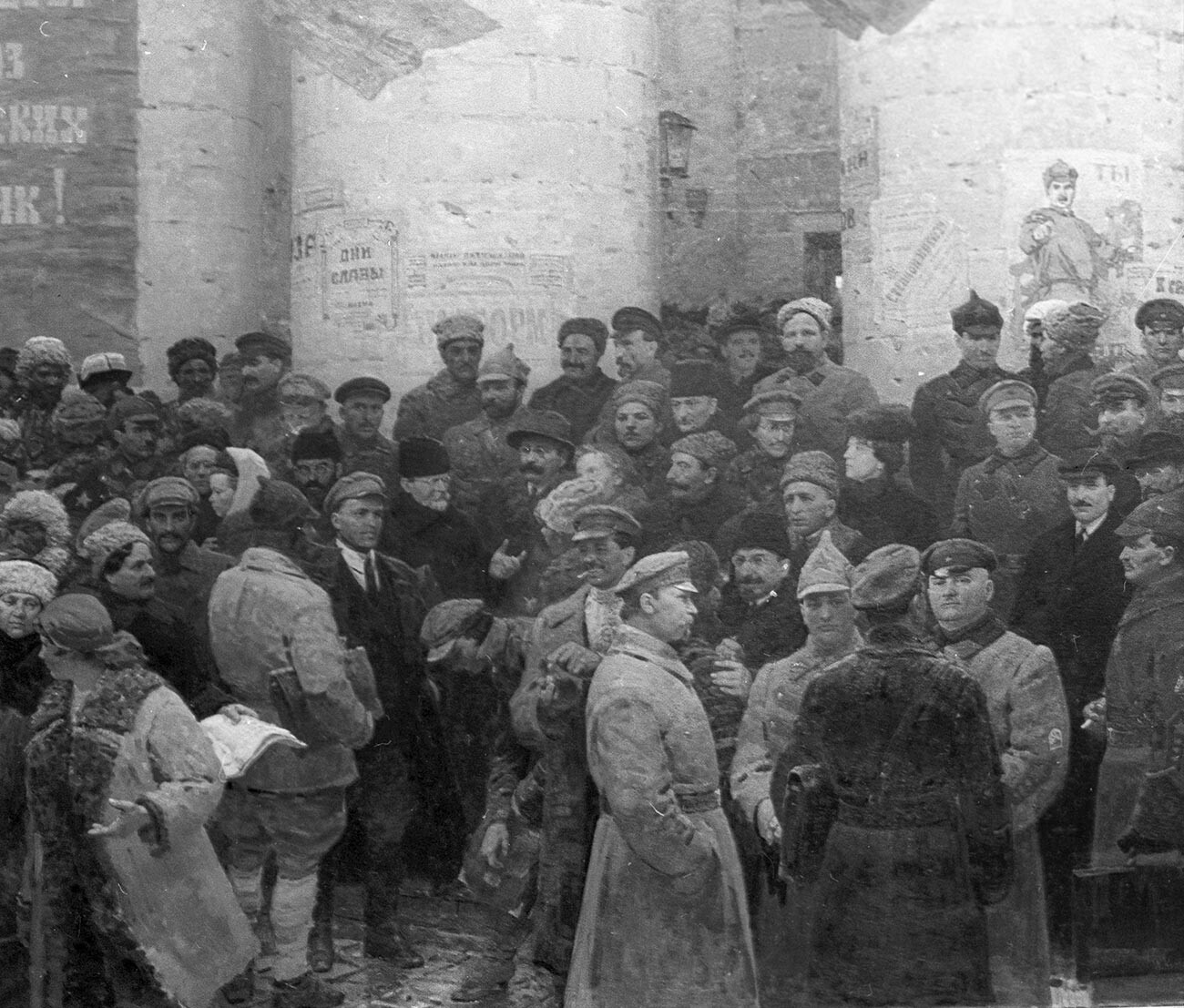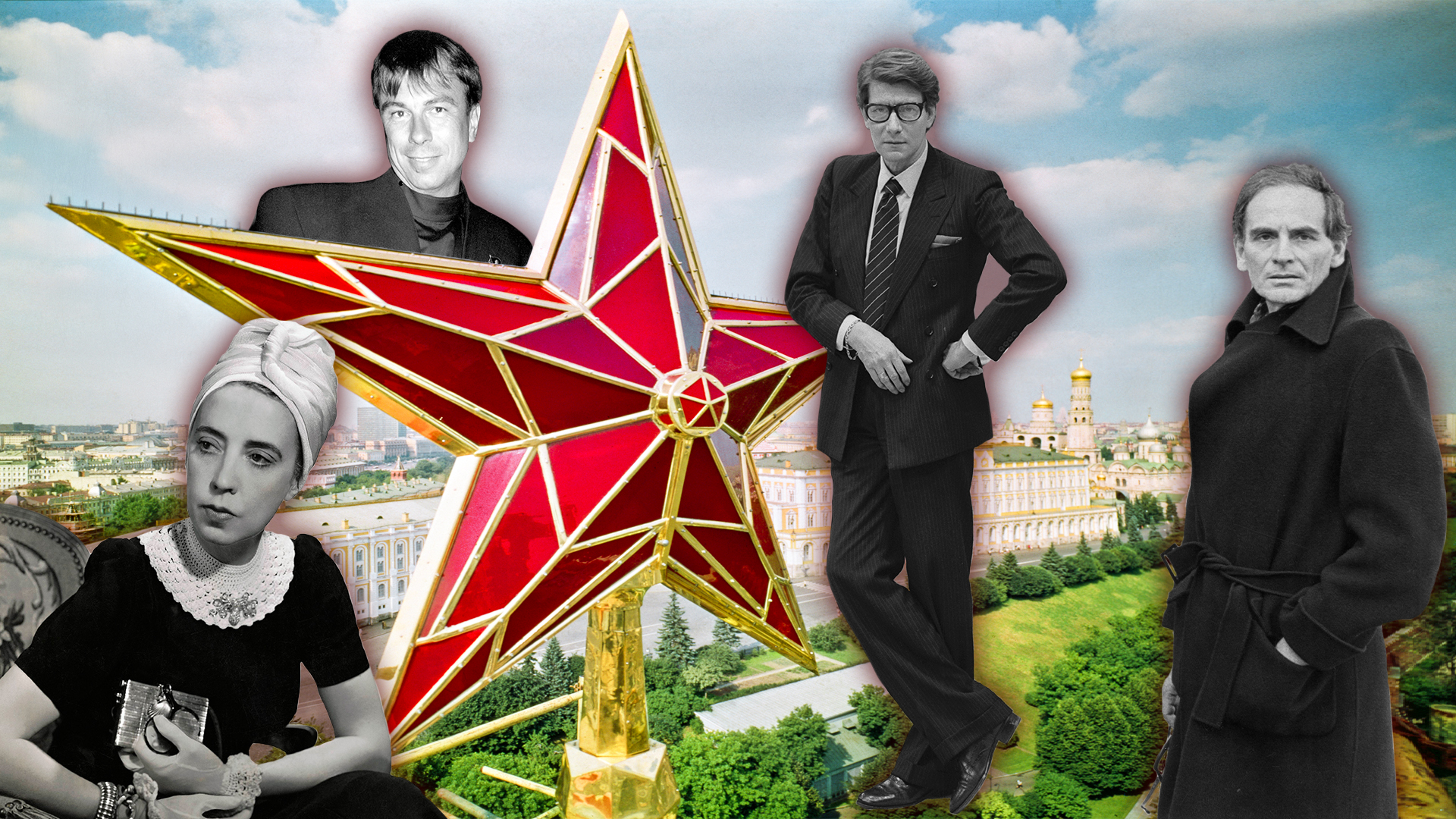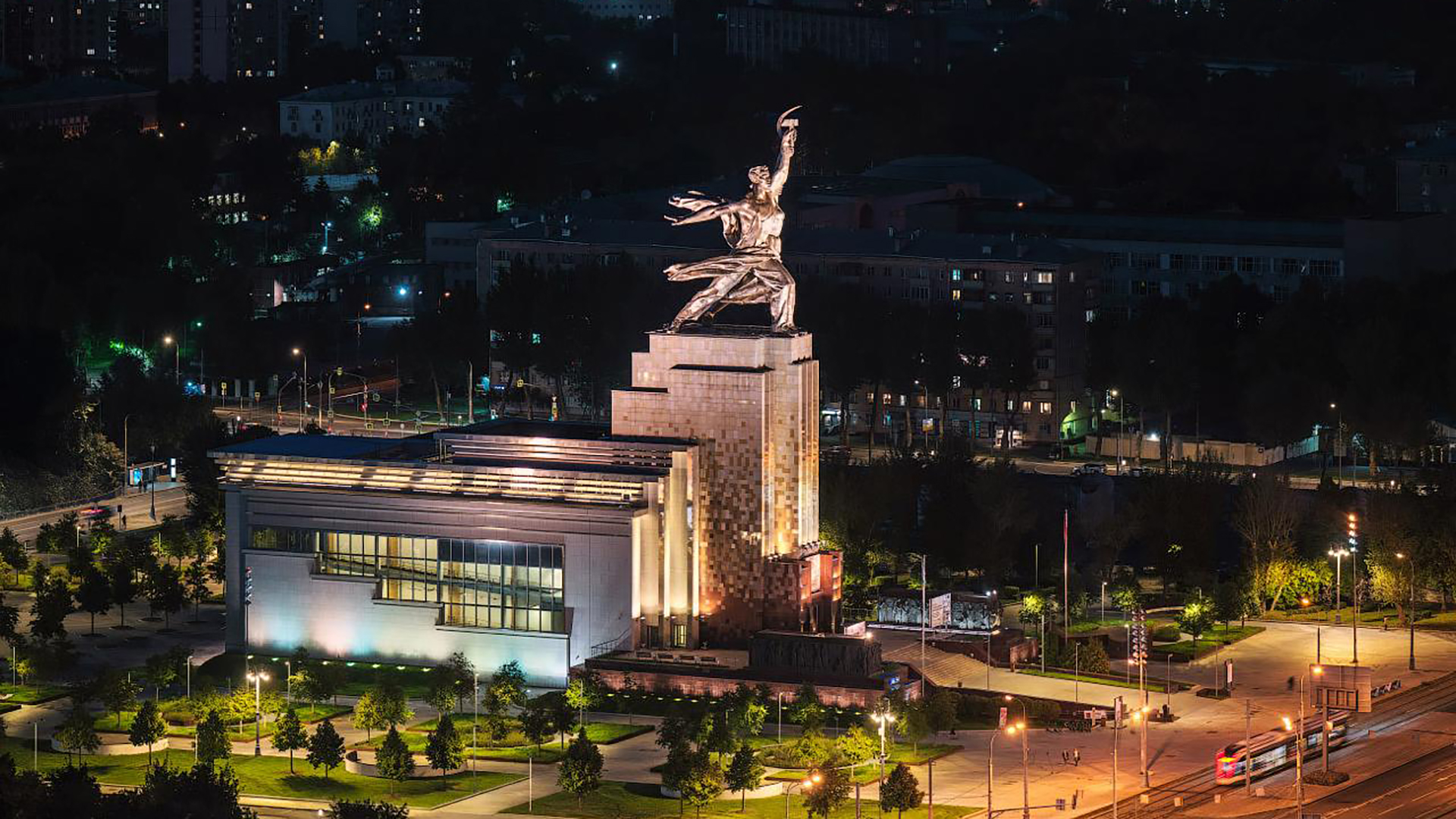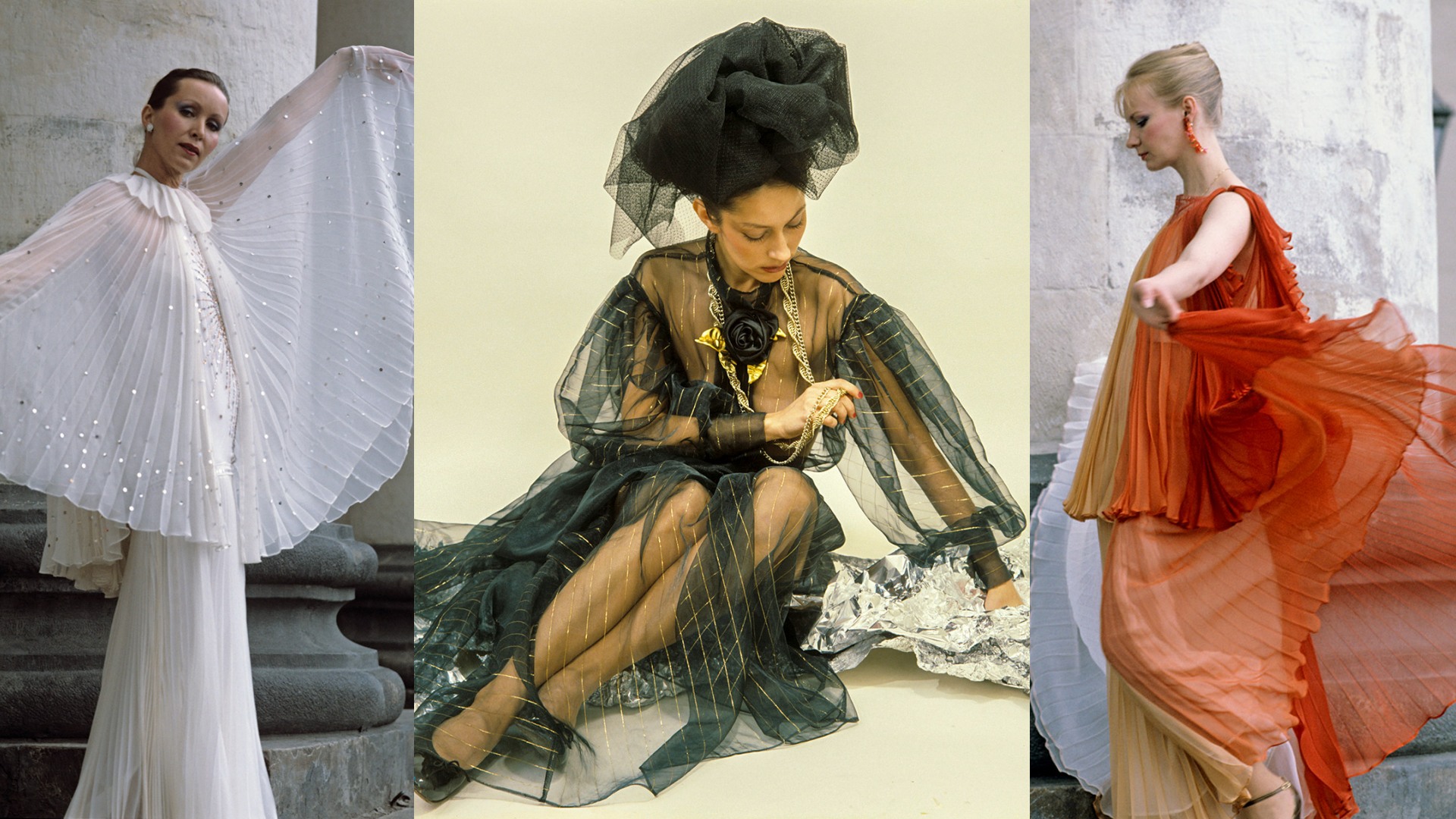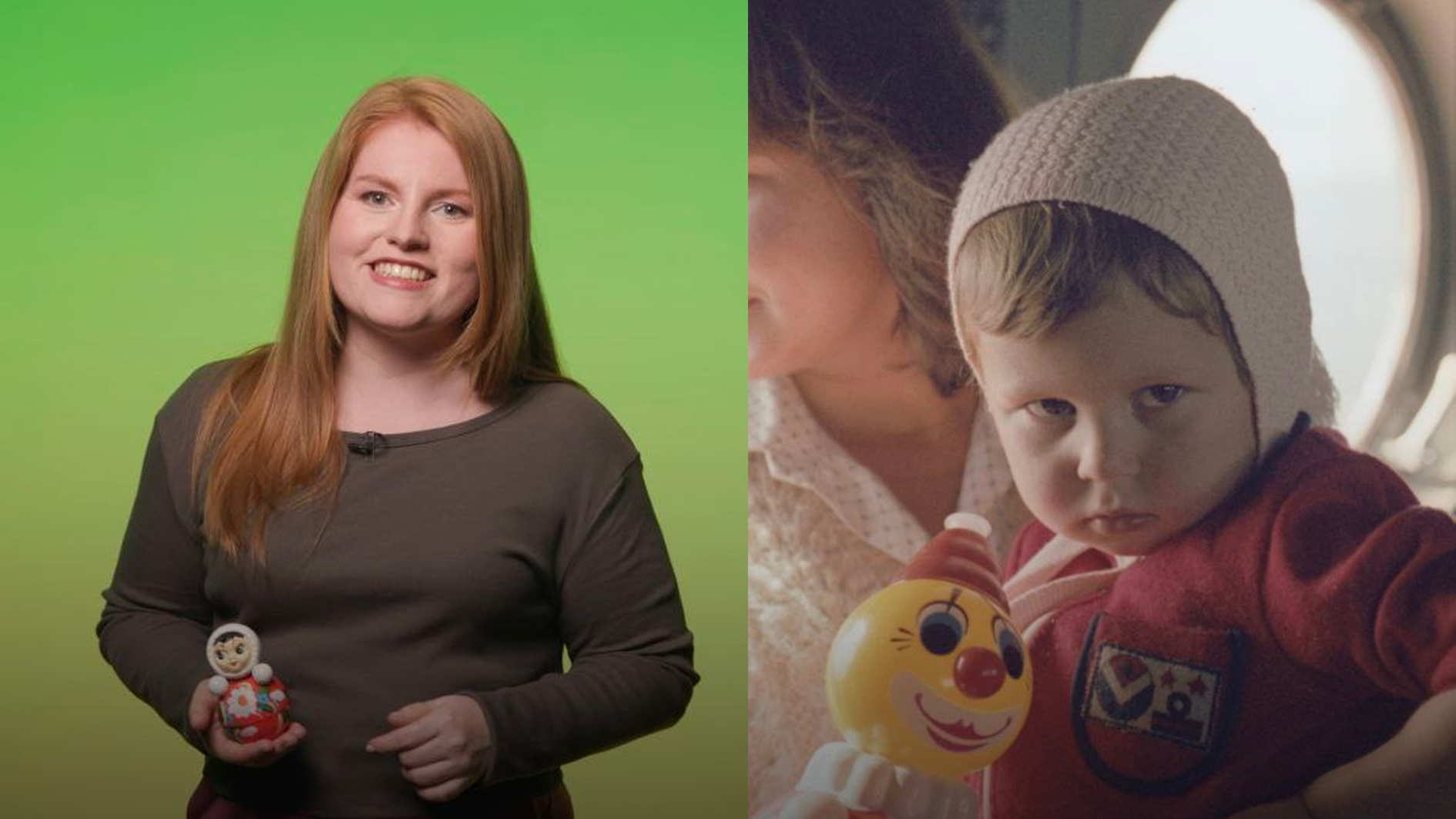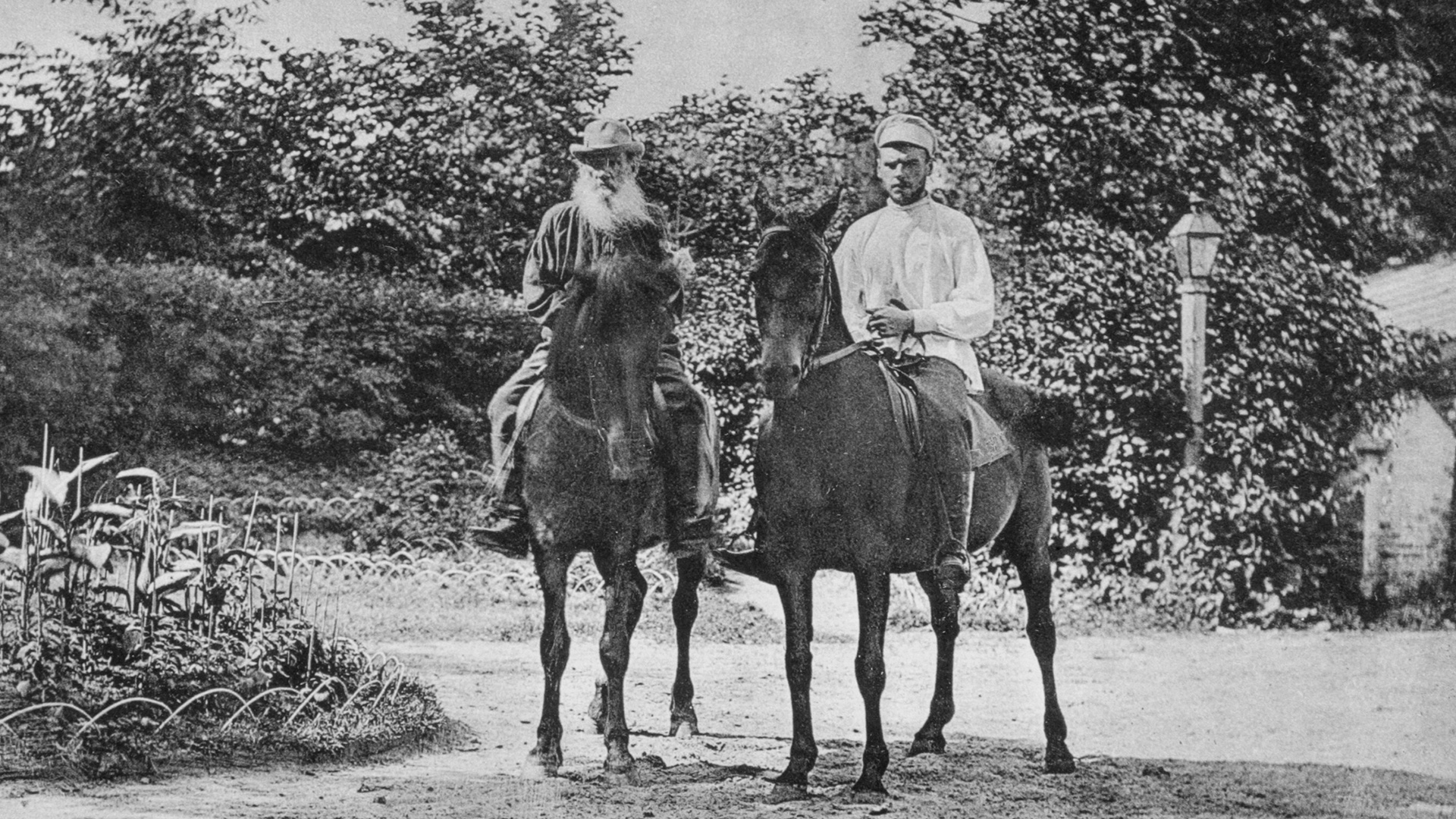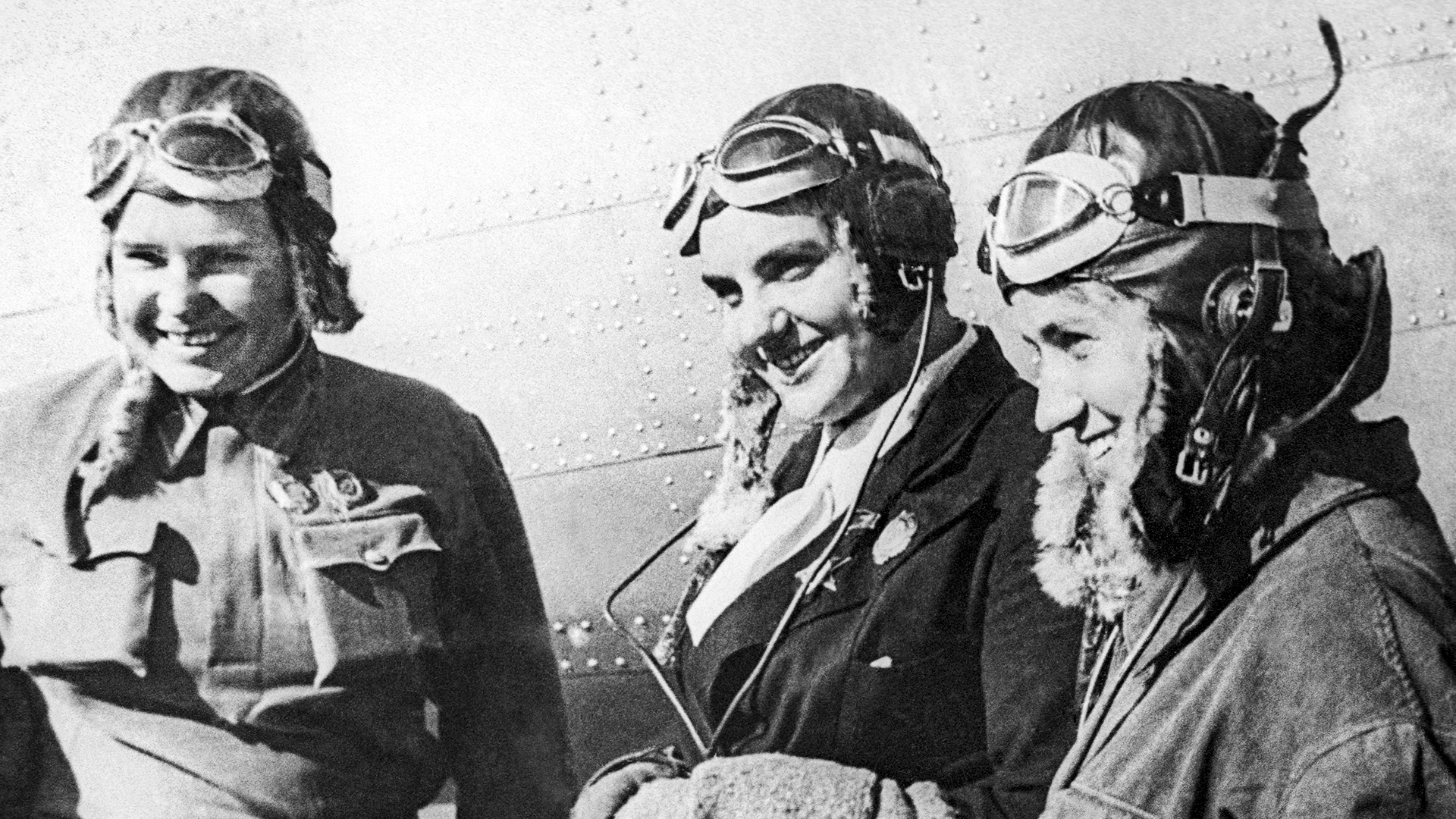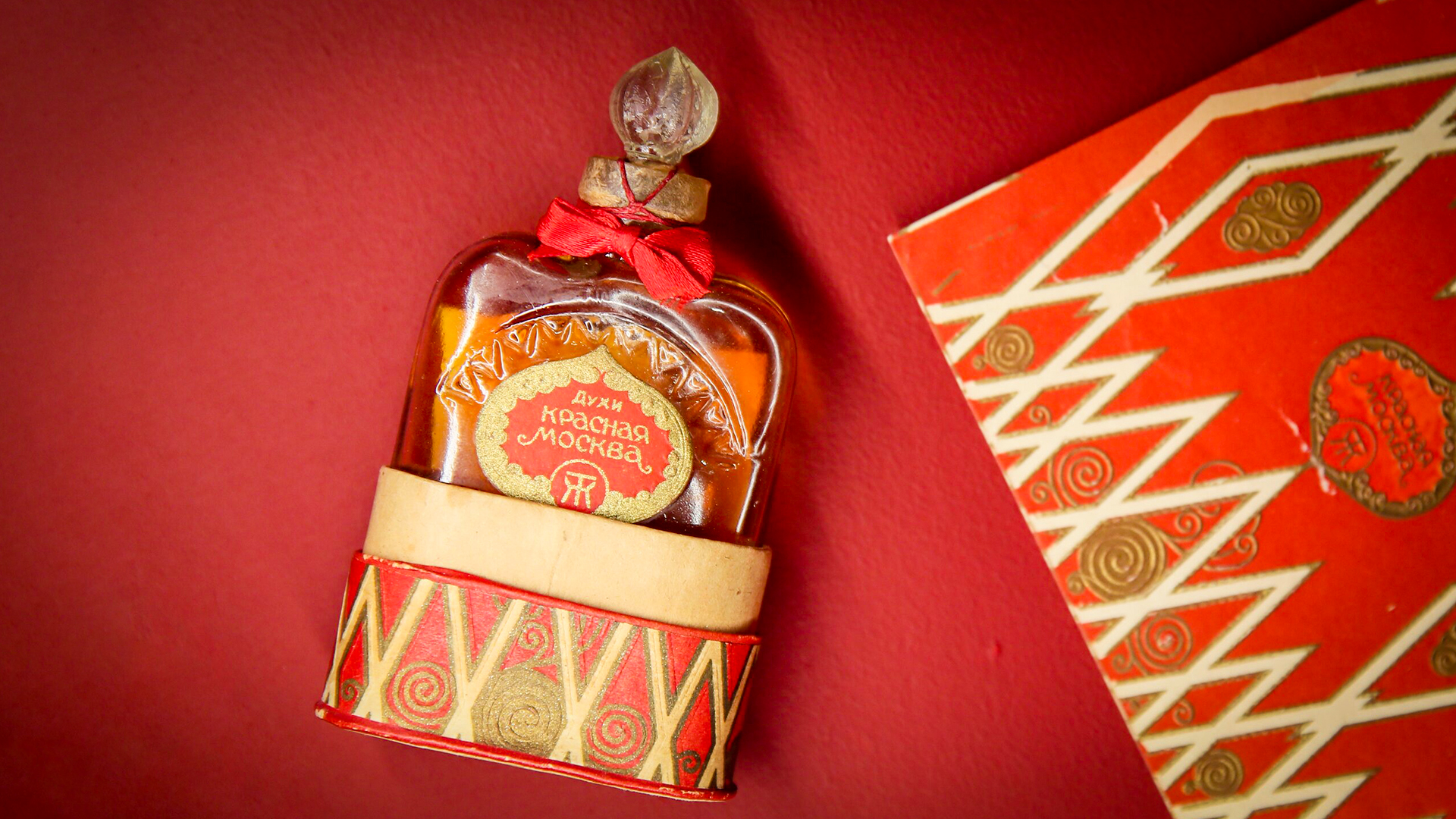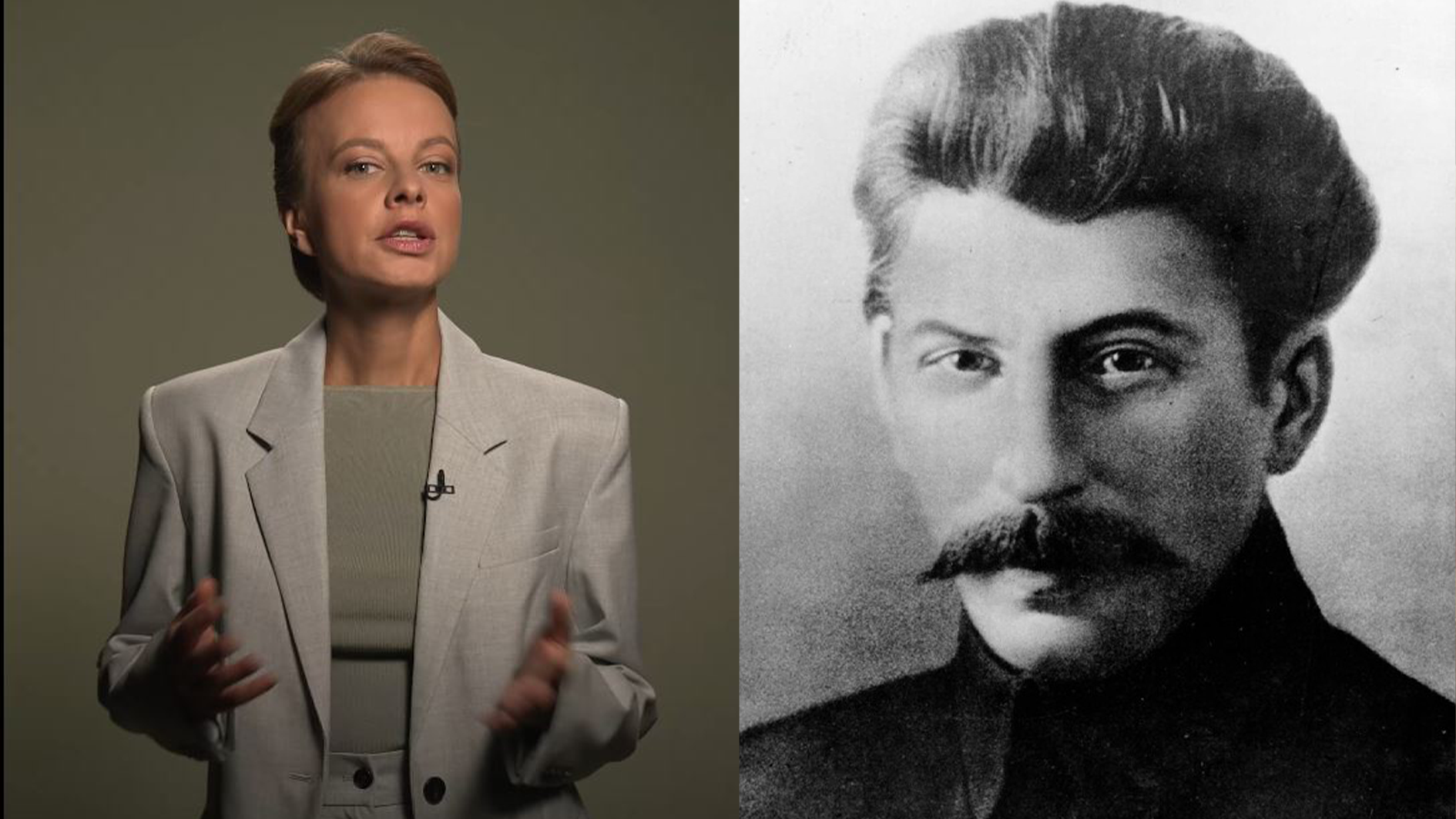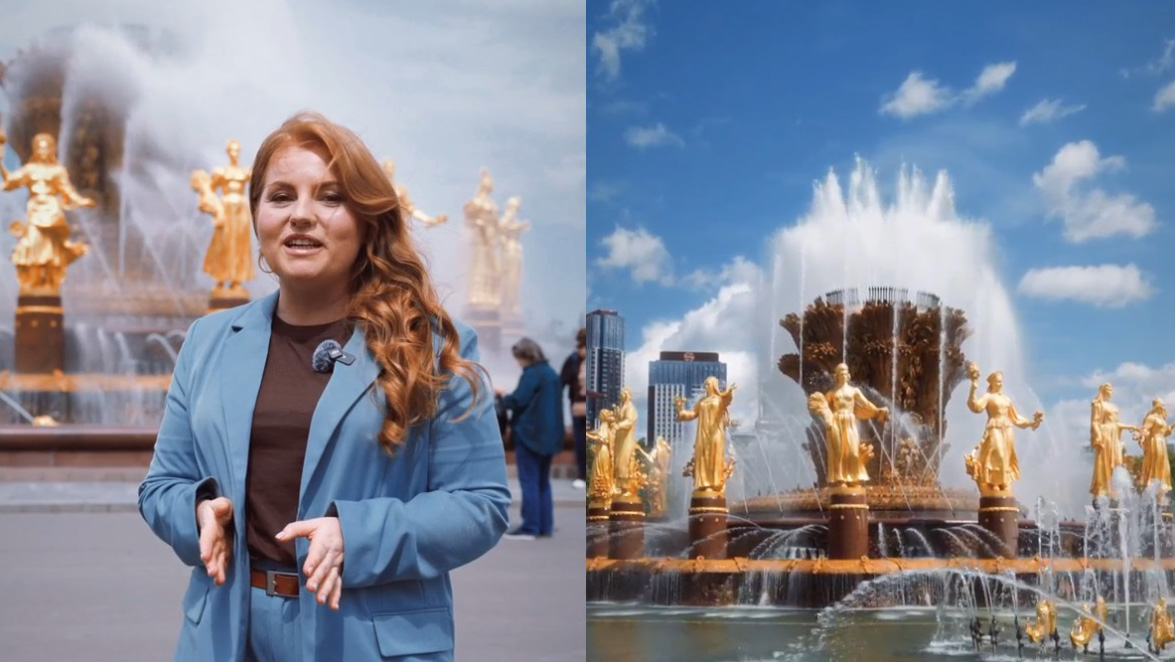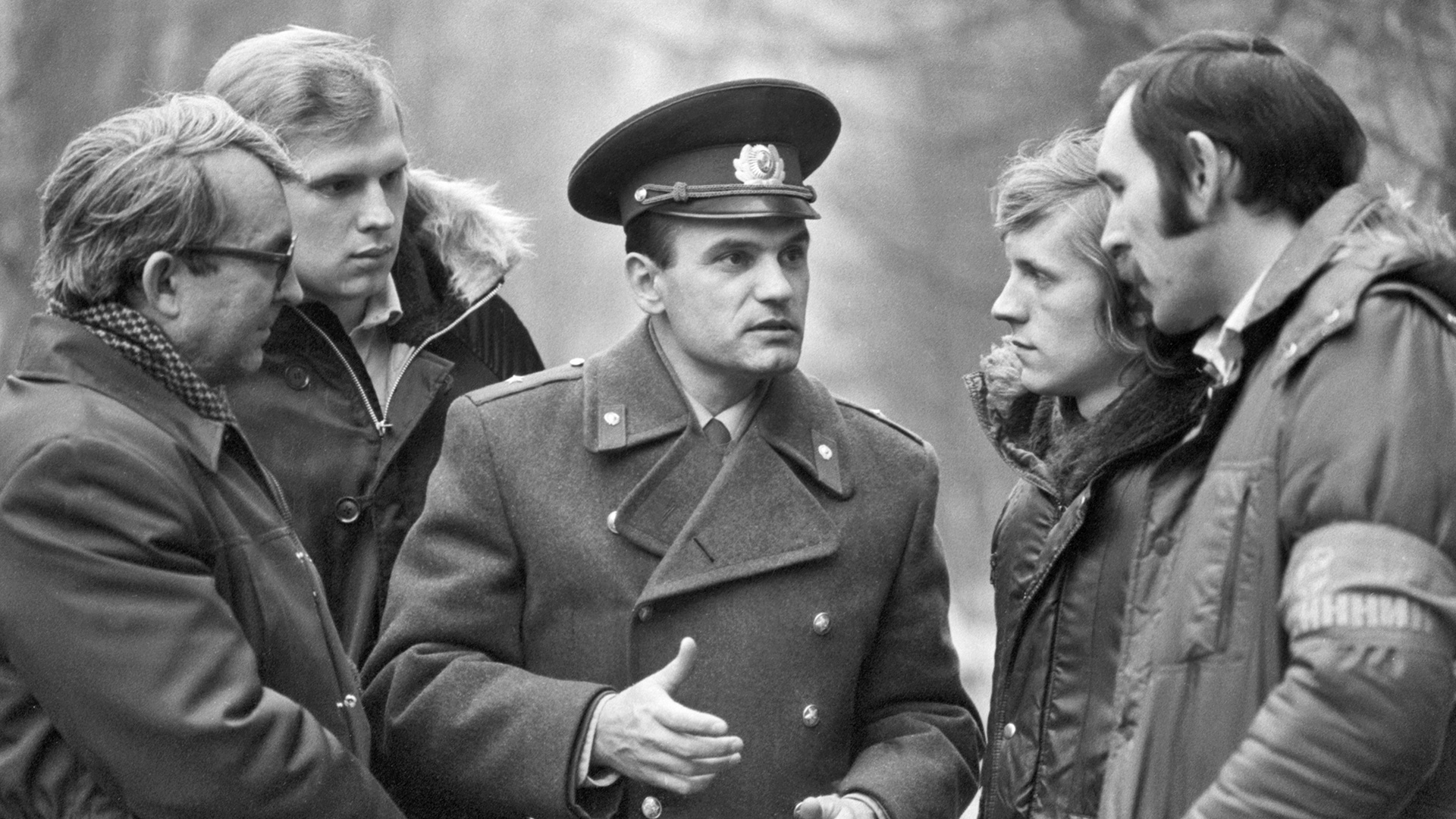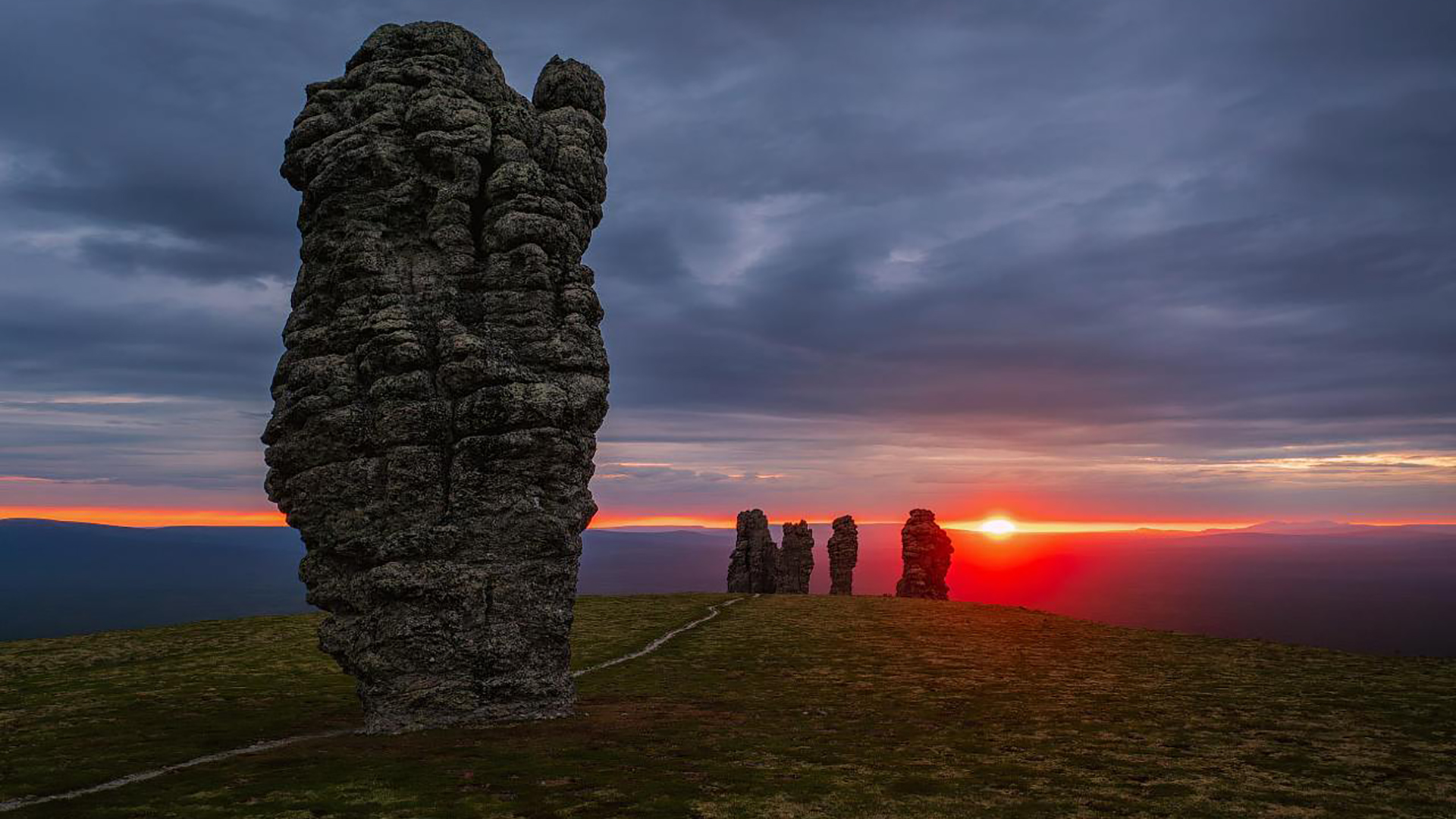
What Russia was like in 1922 (PHOTOS)
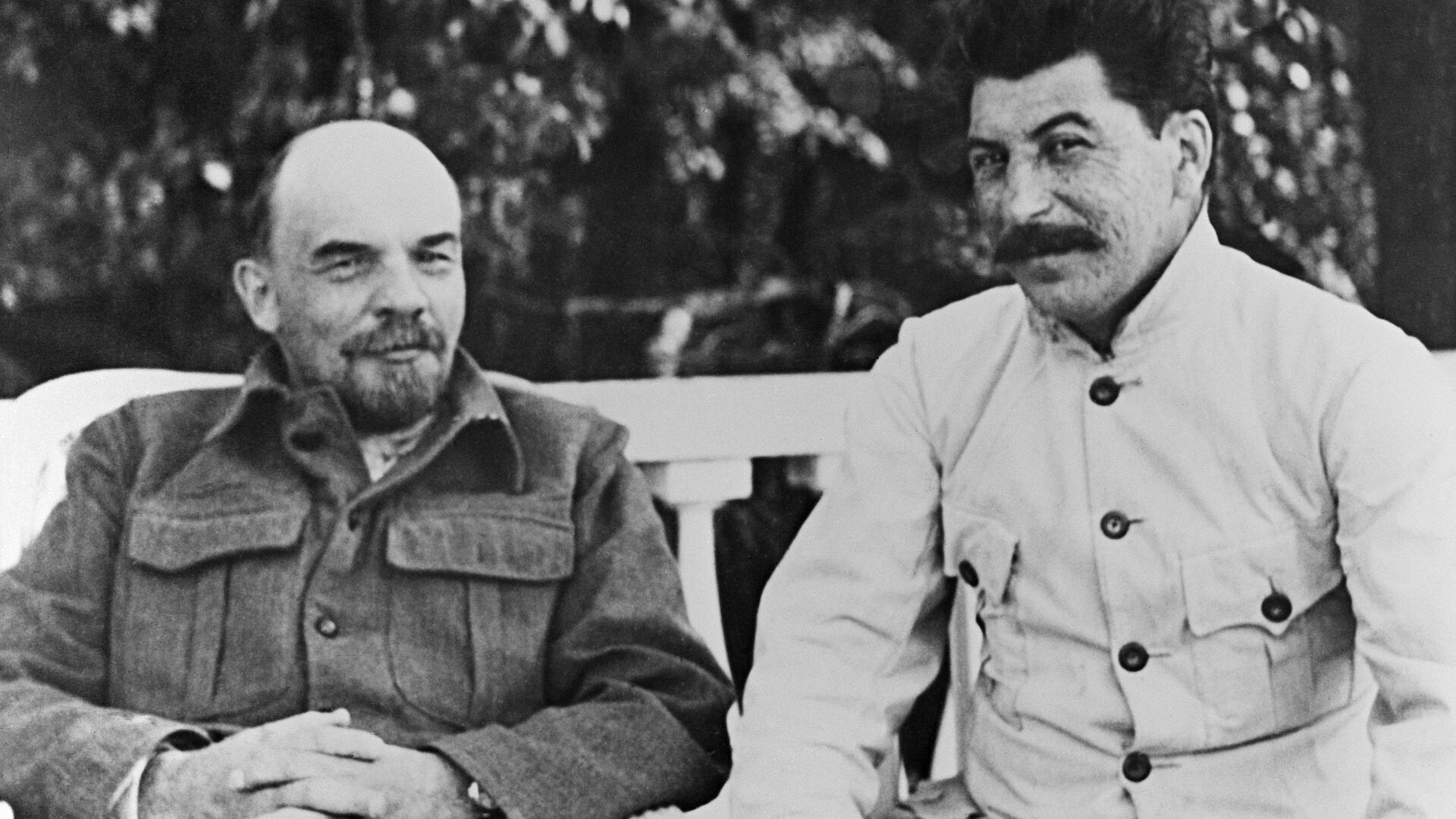
After the 1917 Revolution instigated by the Bolsheviks, the massive Civil War between the “red” socialists and “white” monarchists began. The year 1922 officially marked the last year of the Civil War and the final operations undertaken by the Red Army in the Far East.
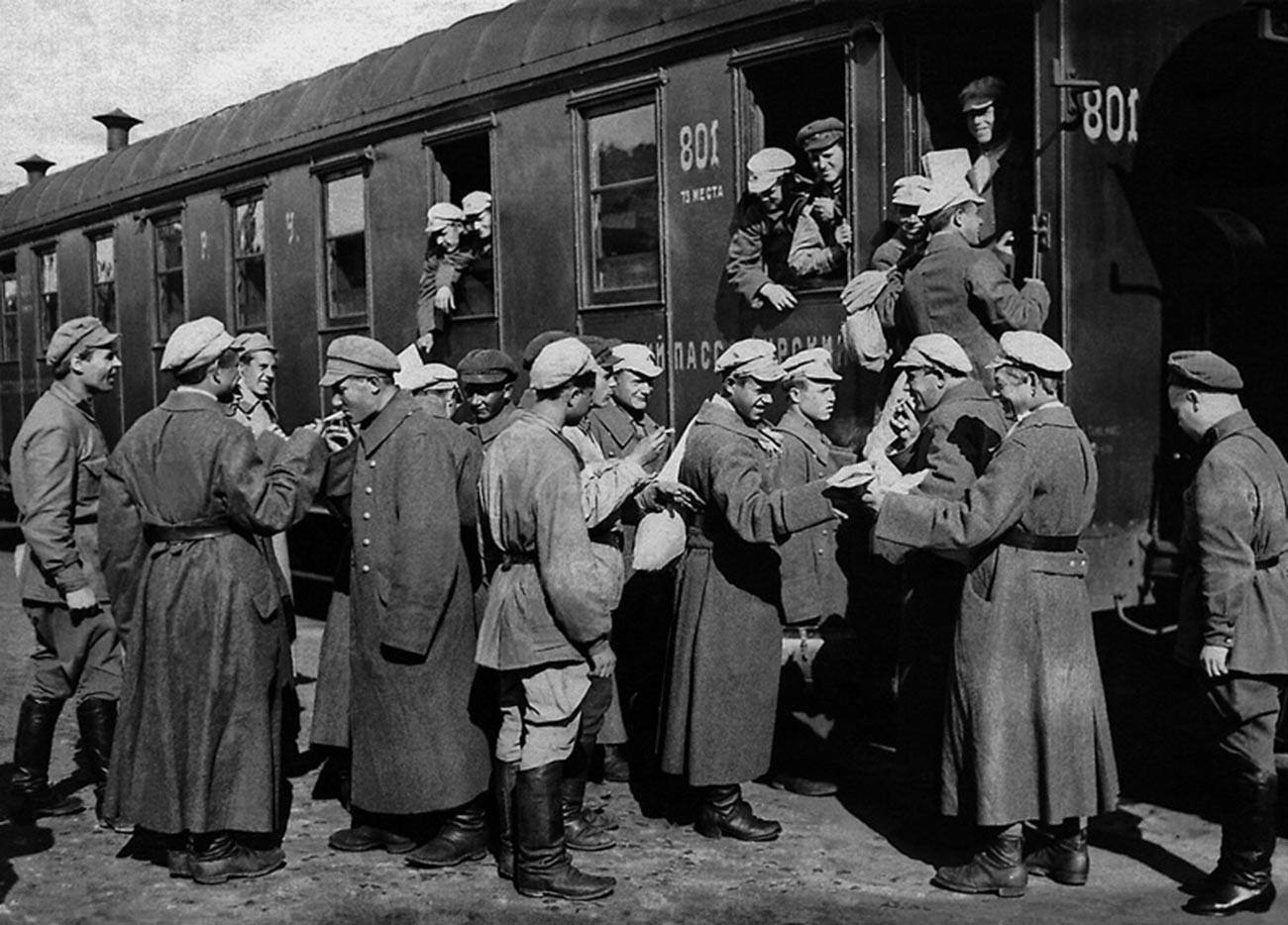
After the battle.
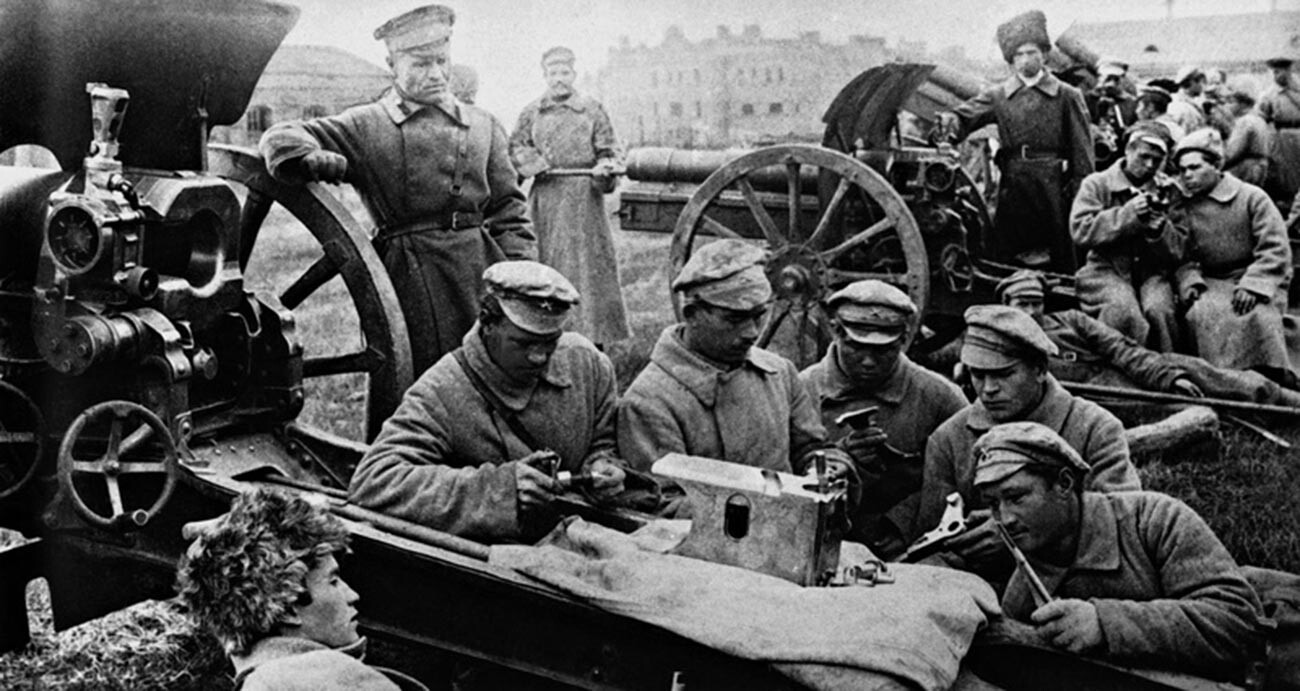
Red Army soldiers in Vladivostok. Their poster reads: “Peace, order and tranquility are brought by the People’s Revolutionary Army”.
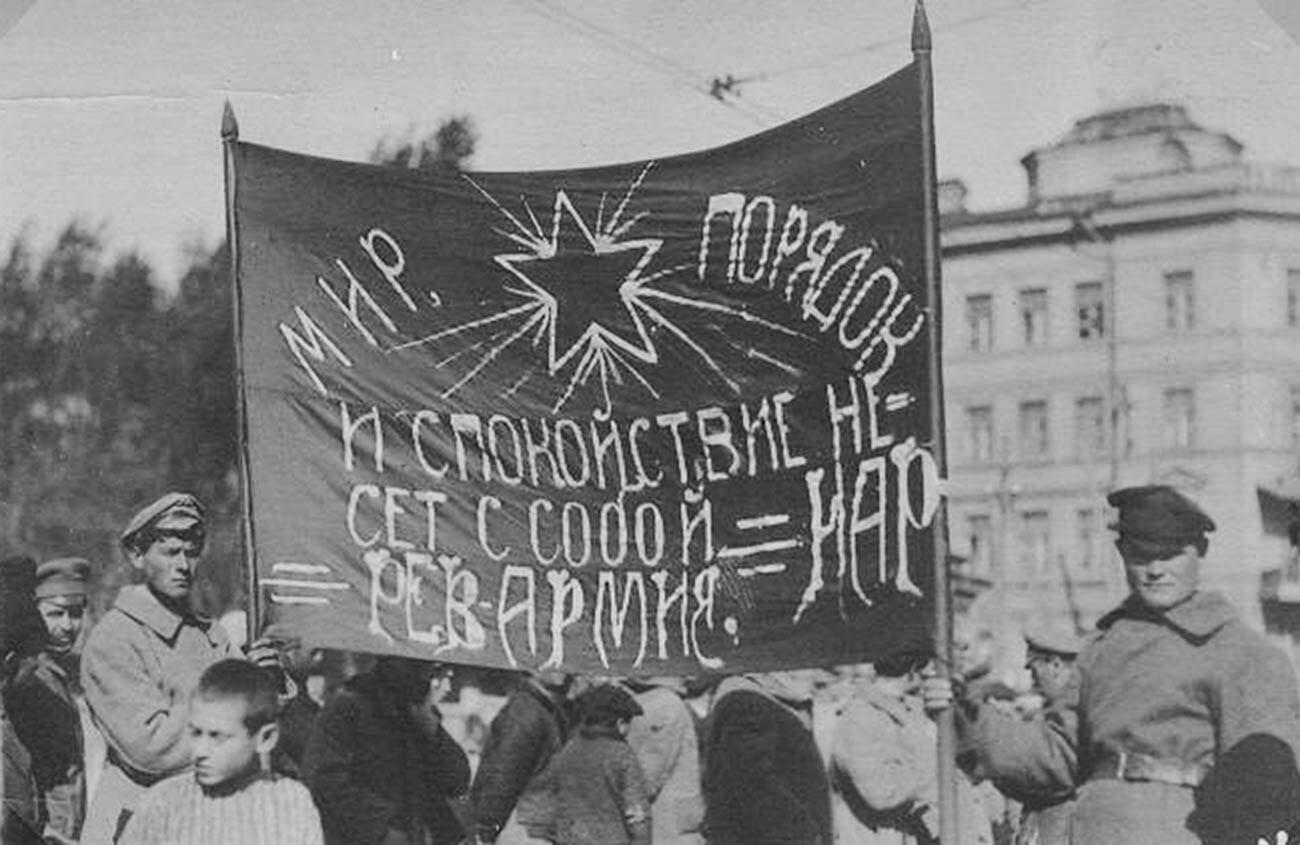
The protracted war affected the country a lot, caused many deaths and a huge hunger which children suffered the most. Pictured are children preparing for evacuation from the starving Chelyabinsk Province to Bashkiria.
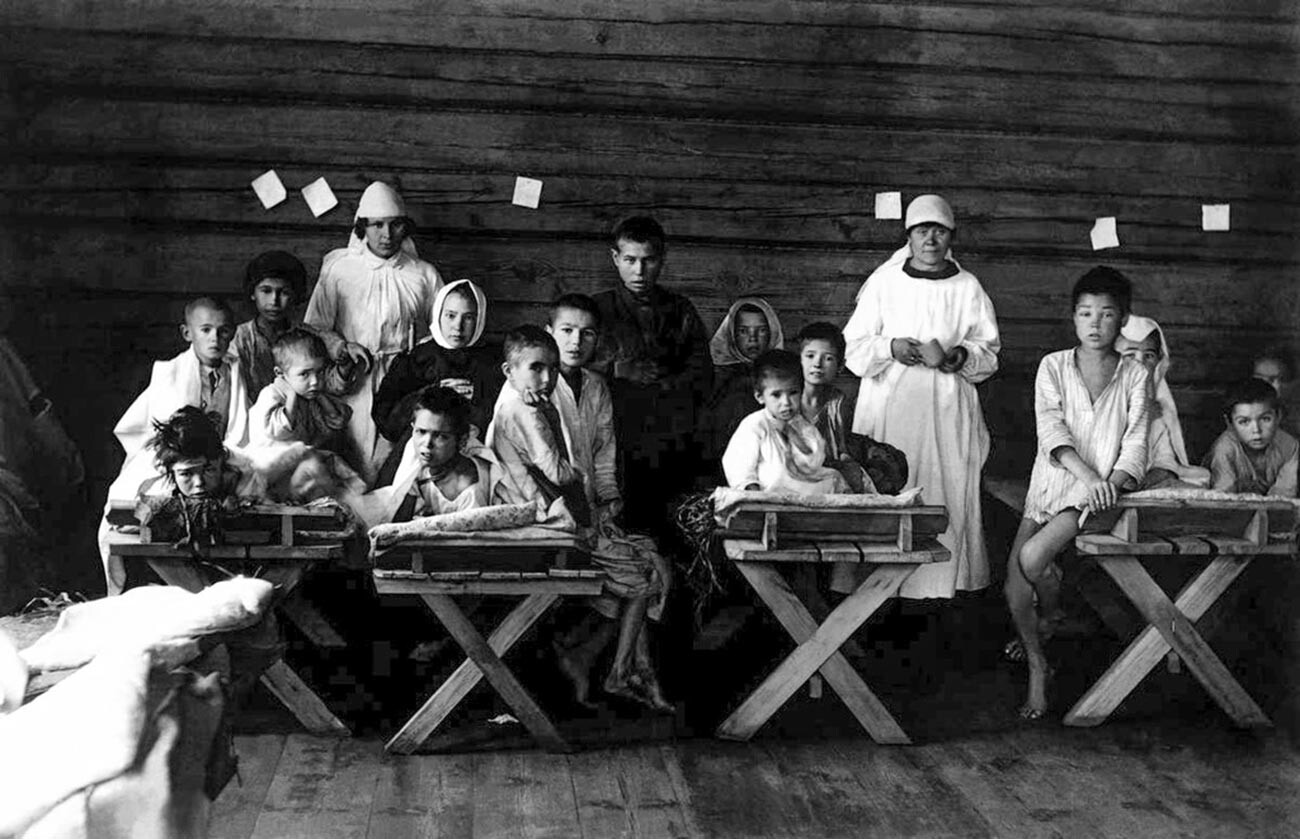
A group of communists aboard the Trasbalt vessel. The poster reads: “Workers of the world, unite!”
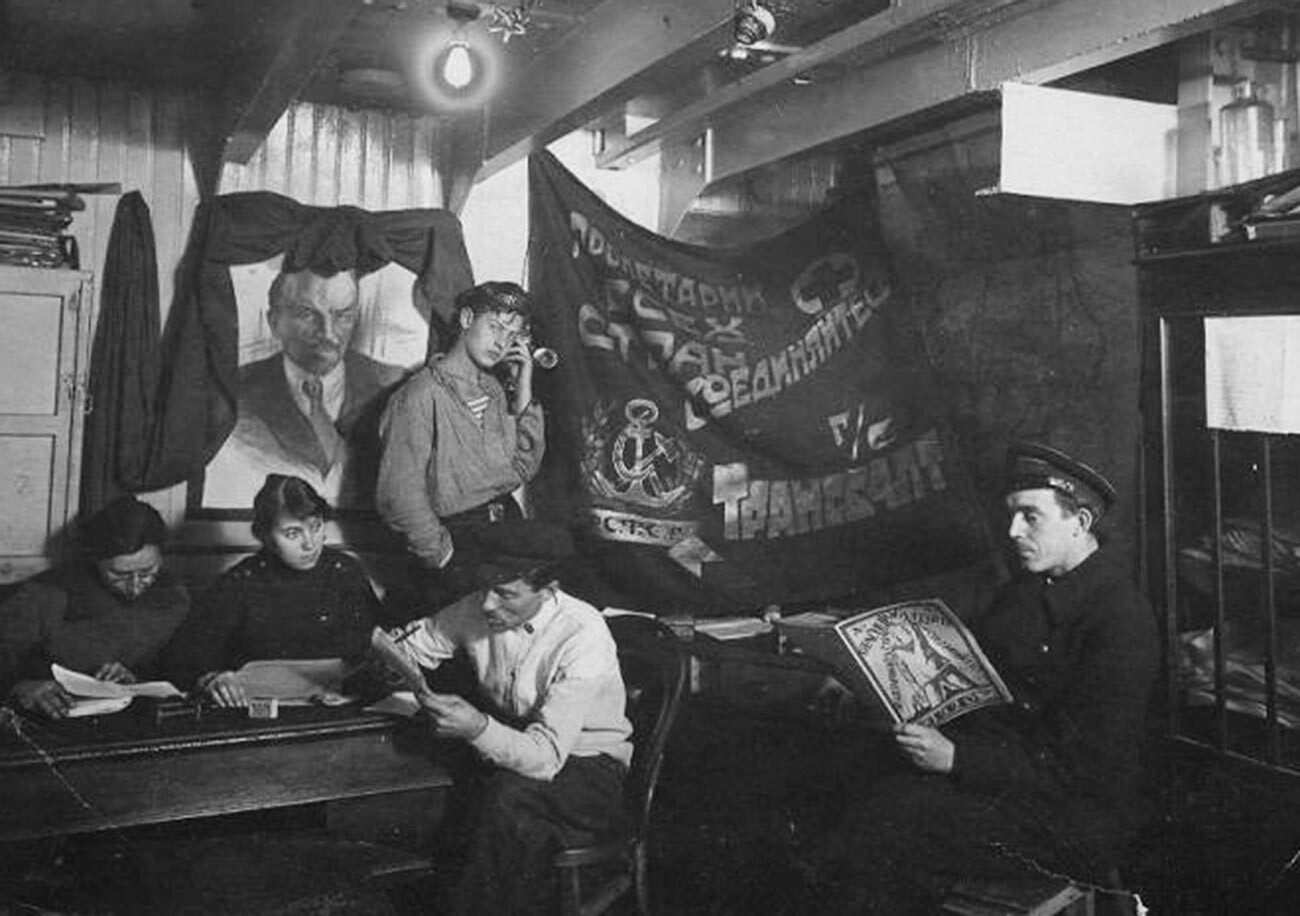
Chairman of the Central Executive Committee of the All-Russian Congress of Soviets, Mikhail Kalinin, making a speech in Petrozavodsk.
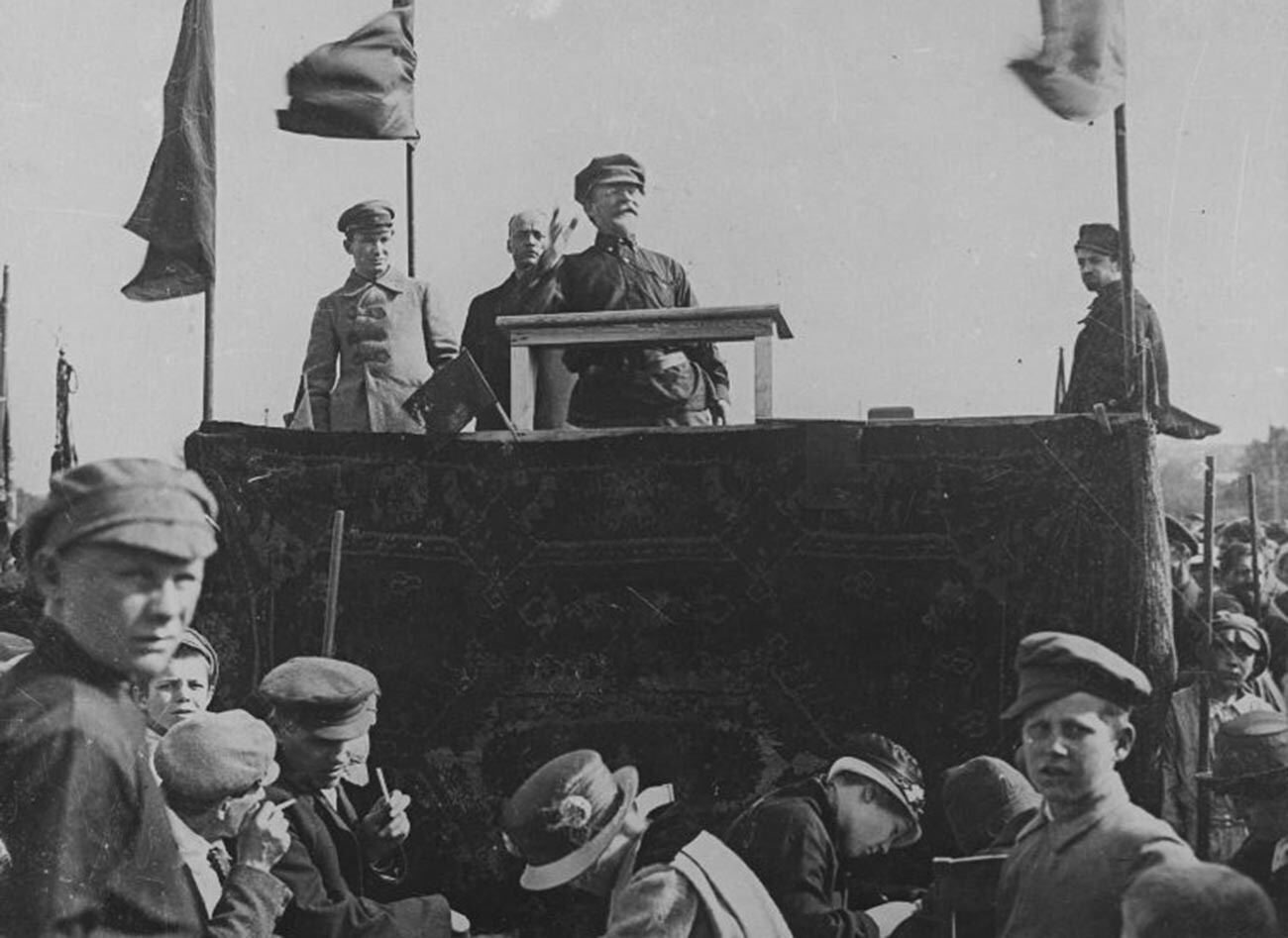
The Red Square parade celebrating the 5th anniversary of the 1917 Revolution.
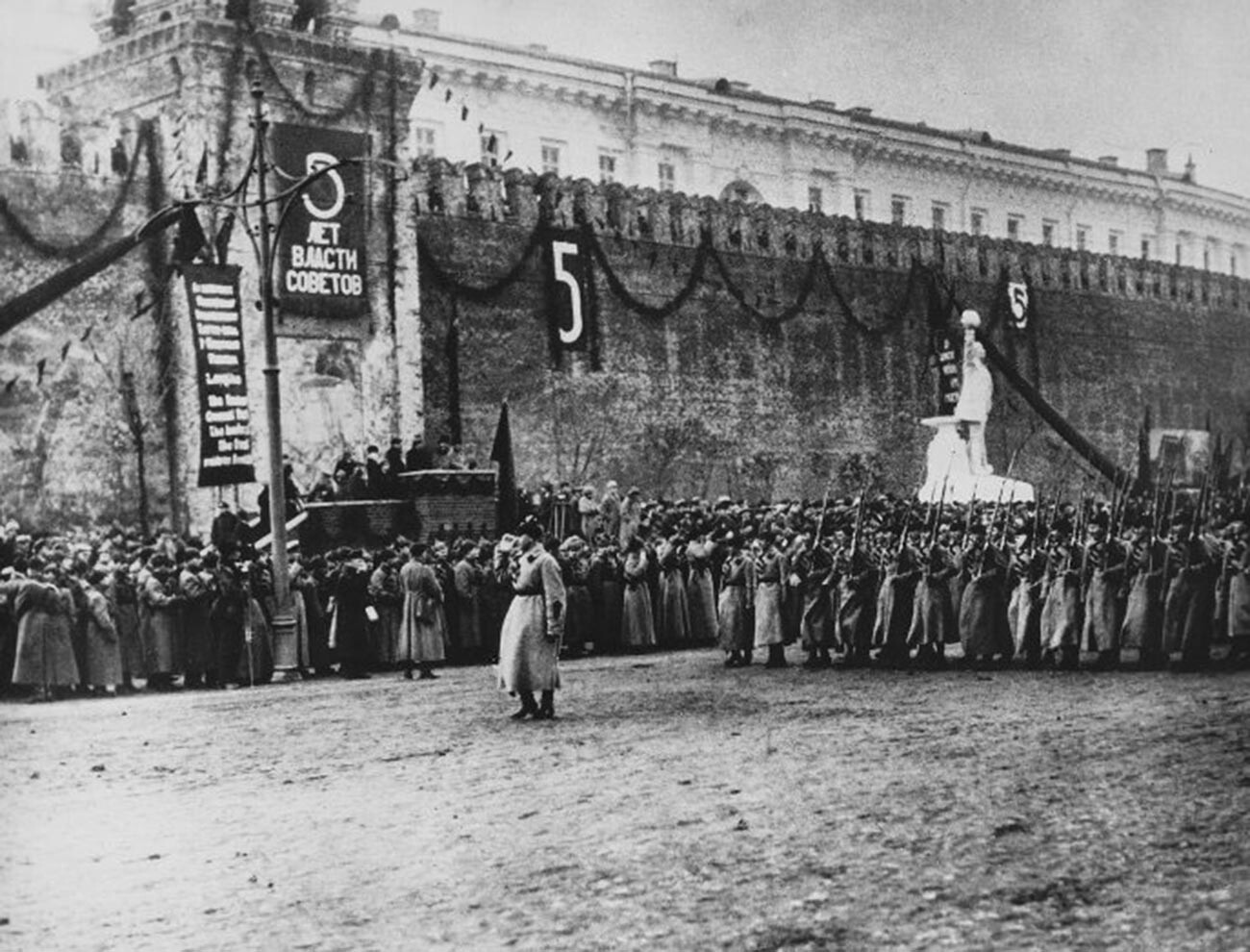
Celebrations on the Palace Square in Petrograd.
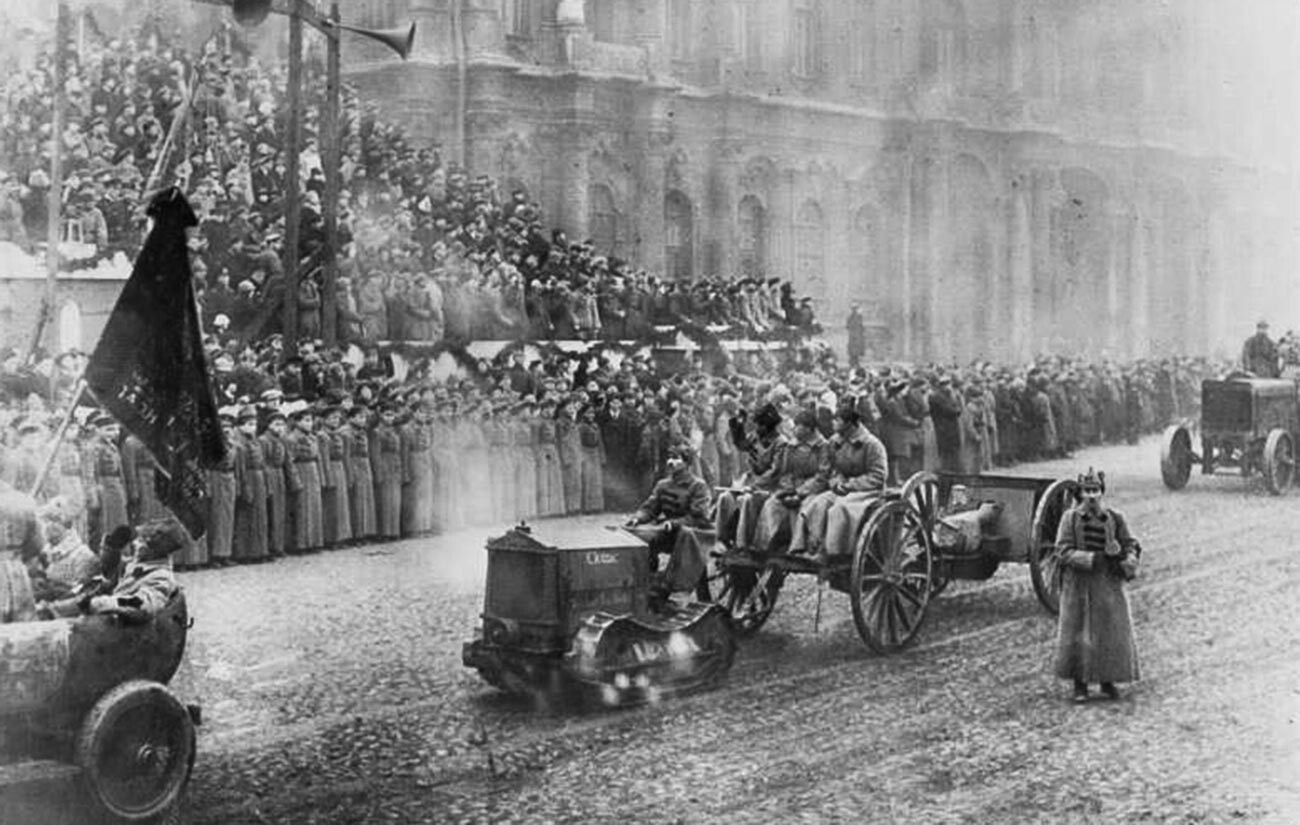
A giant ‘budenovka’ hat named after Red Army cavalry commander Semyon Budyonny.
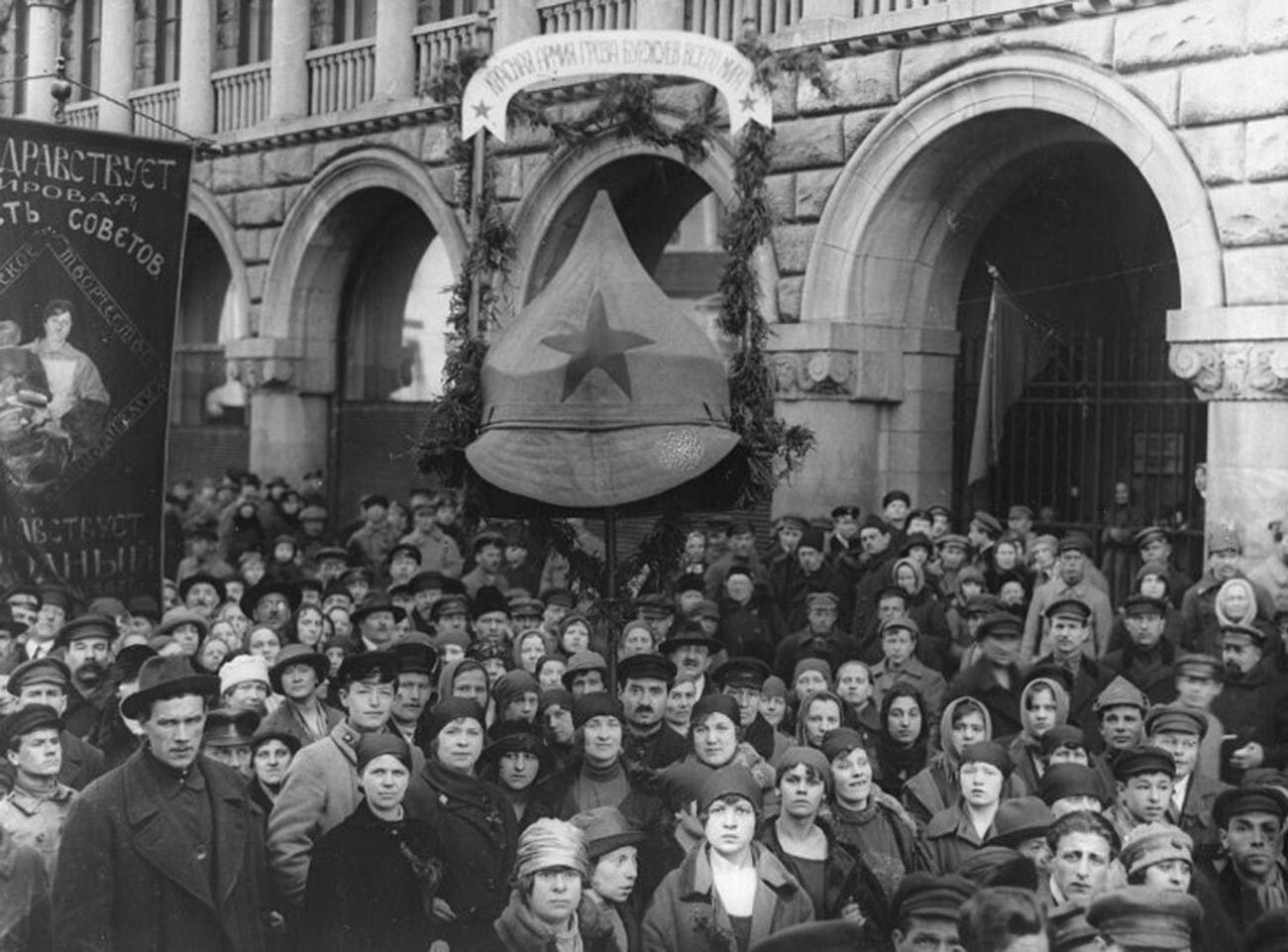
On April 3, 1922, Joseph Stalin was elected General Secretary of the Bolshevik’s party Central Committee, an important position that in the future would actually mean the leader of the country. Pictured with Vladimir Lenin.
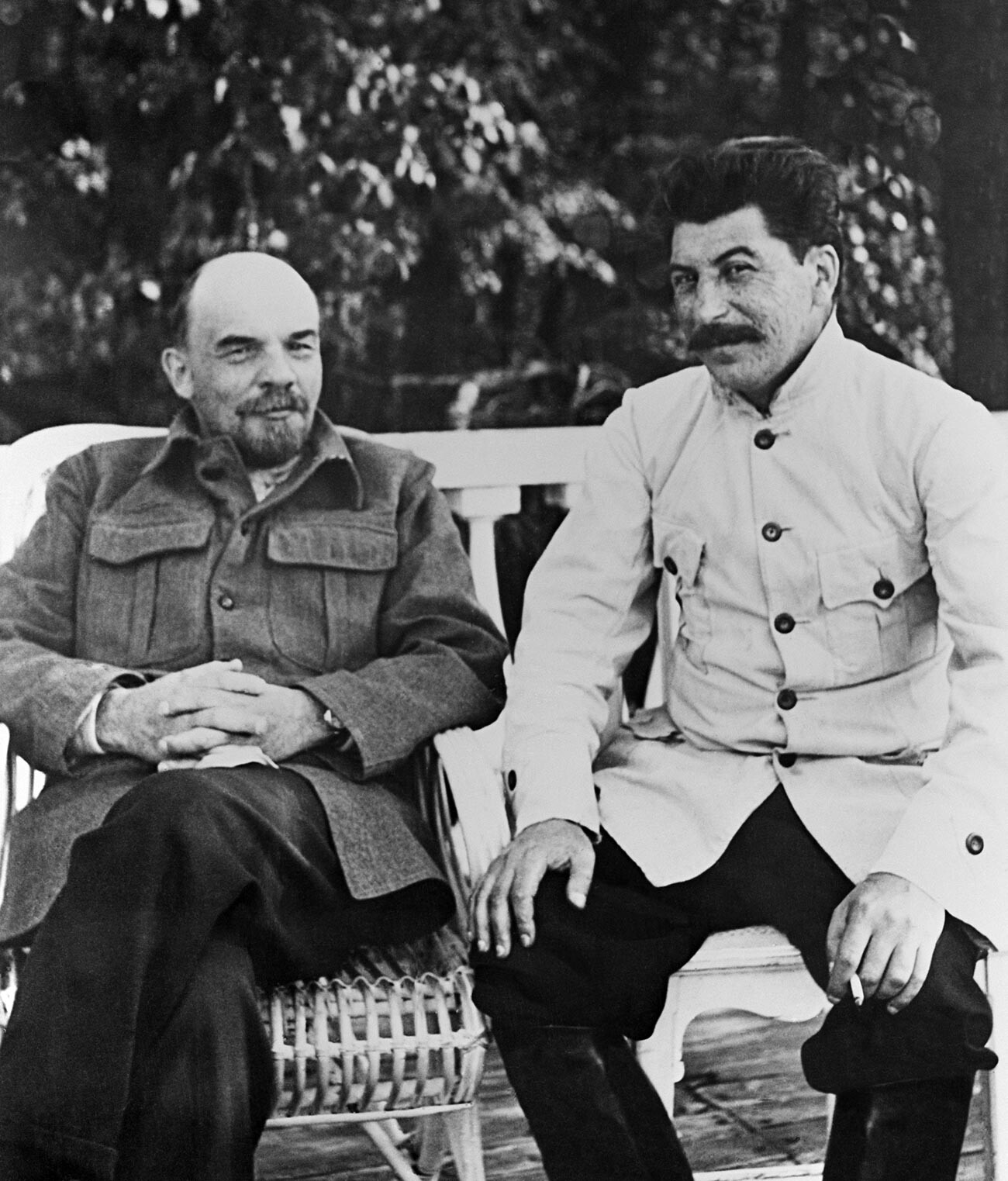
It’s still two years before Vladimir Lenin’s death. He is still a leader of the country and head of government. However, in 1922, he was already ill. Pictured below with his life and revolutionary comrade Nadezhda Krupskaya. Read more about the Soviet first First Lady here.
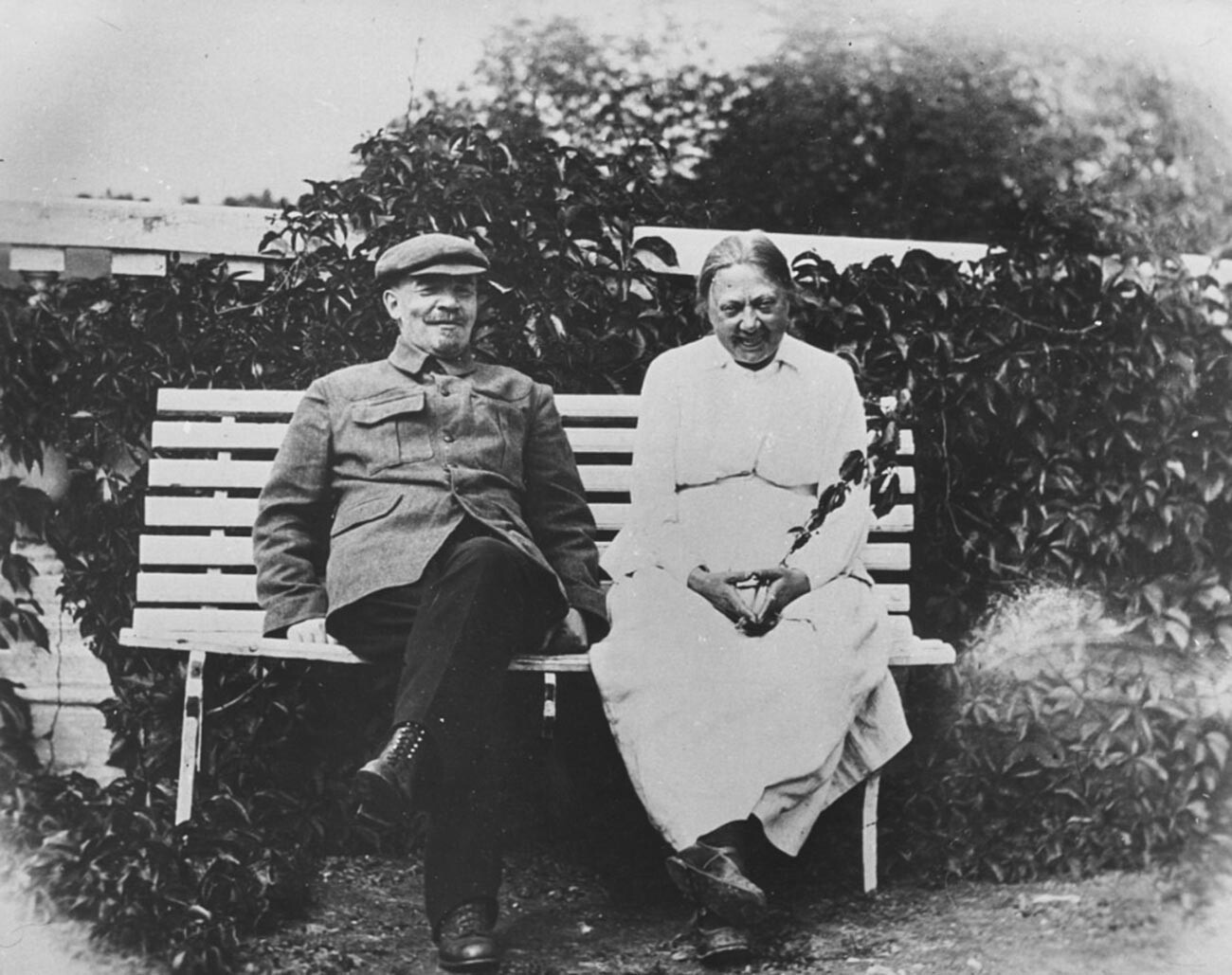
At the same time, in 1922, ‘Cheka’ (The All-Russian Extraordinary Commission), which was in charge of all the red revolutionary terror, became part of the Ministry of Internal Affairs (NKVD) - and kept its purges under the head of an unchangeable leader, ‘The Iron Felix’ (Dzerzhinsky).
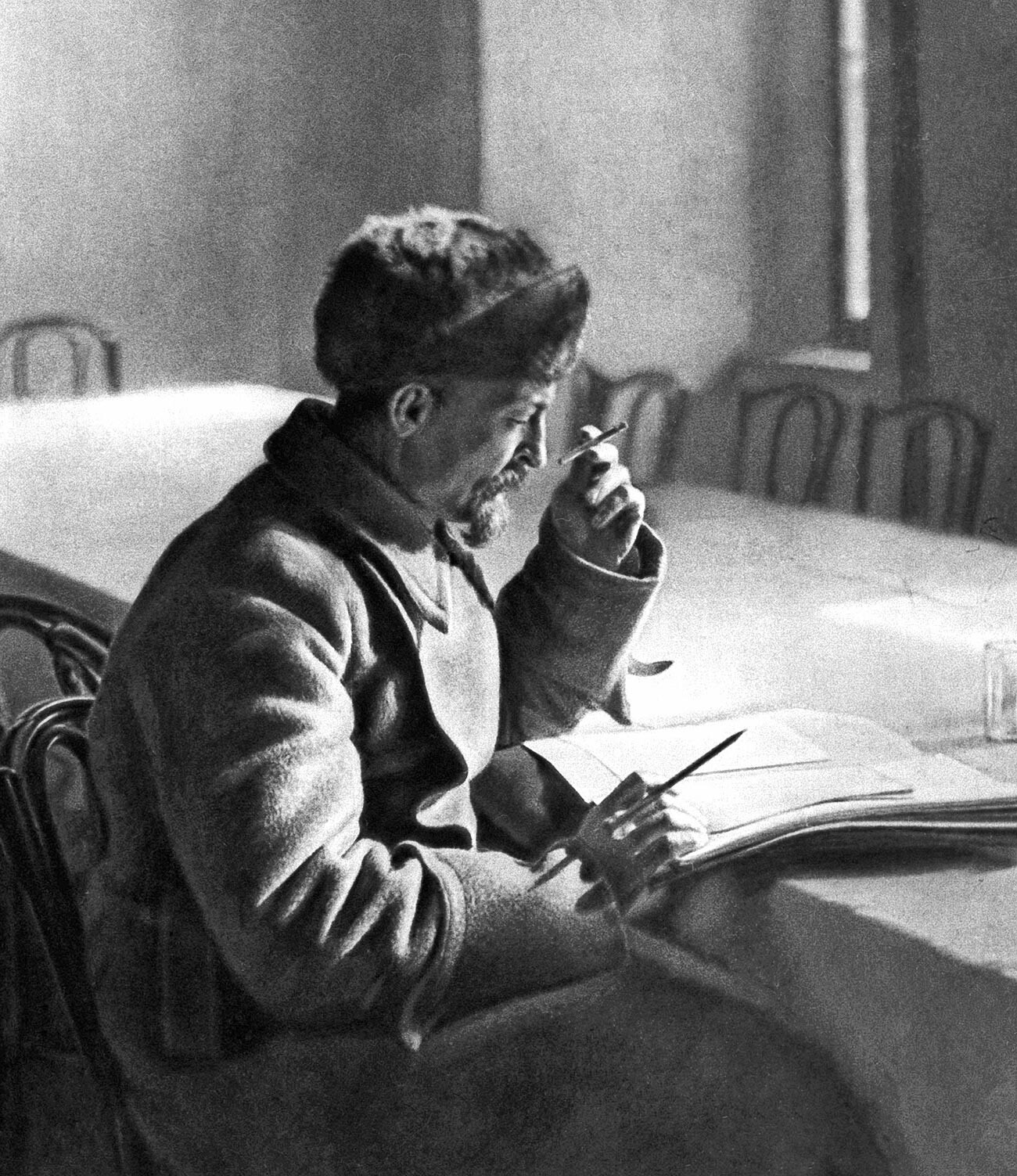
In 1922, one of the country’s most popular soccer clubs, Spartak, was established. Read more about the turbulent fate of its founders here.
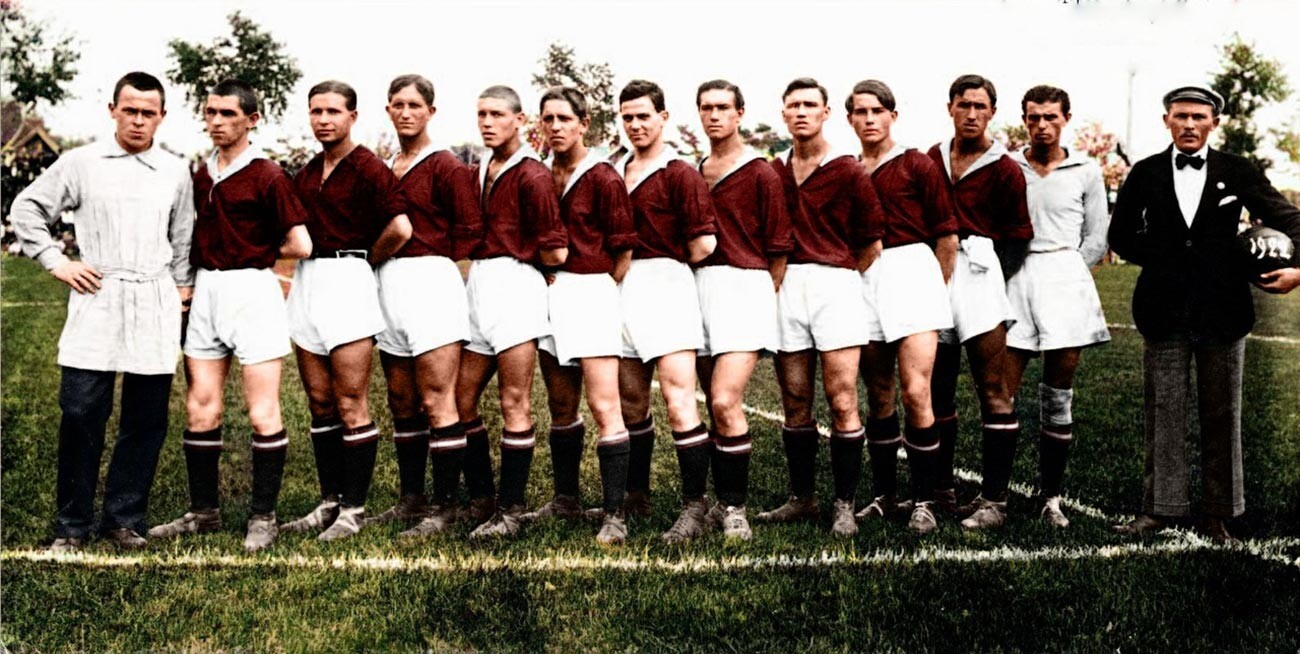
A mother and daughter posing for a photo.
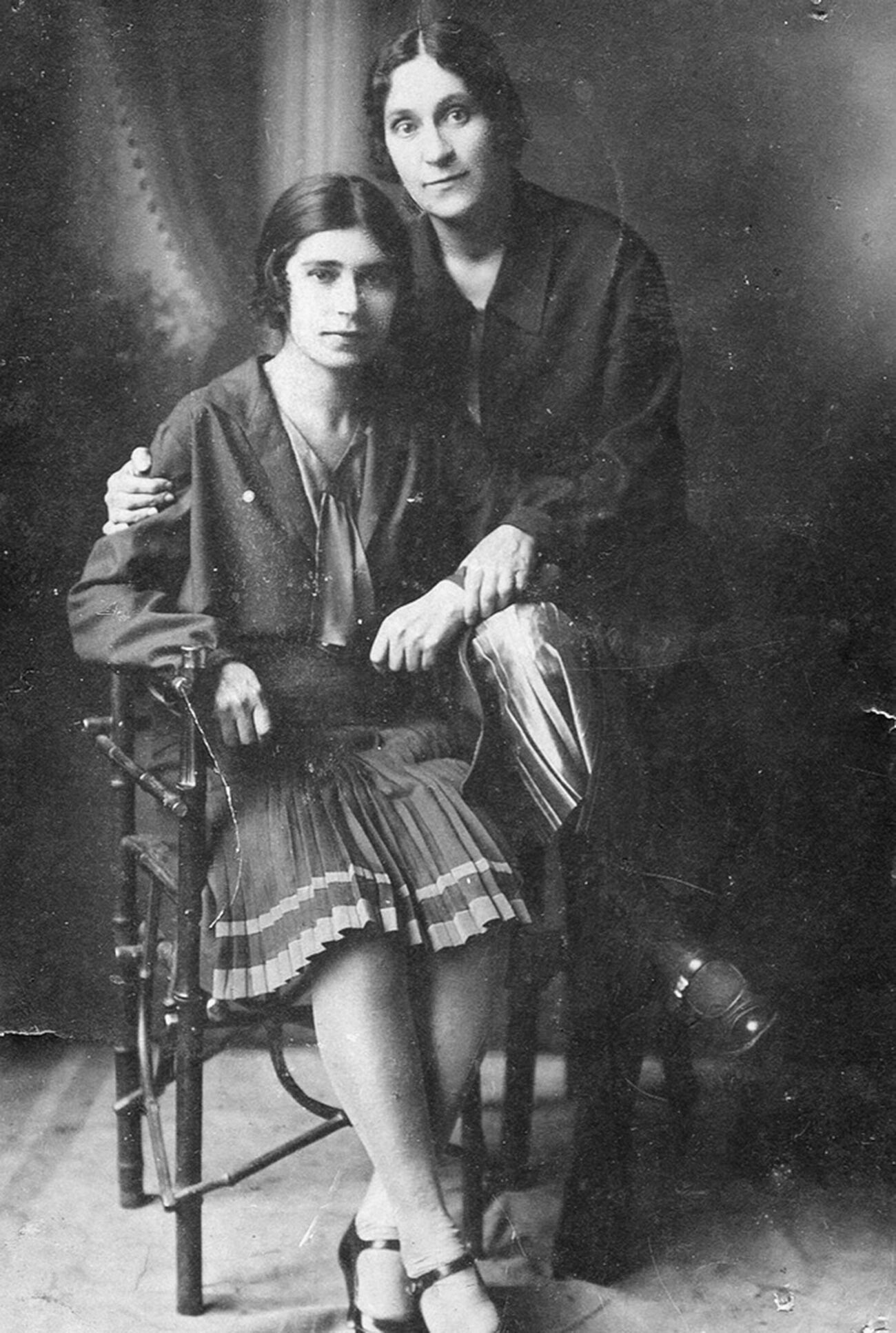
A sewing factory (now the ‘Bolshevichka’ factory) in Moscow.
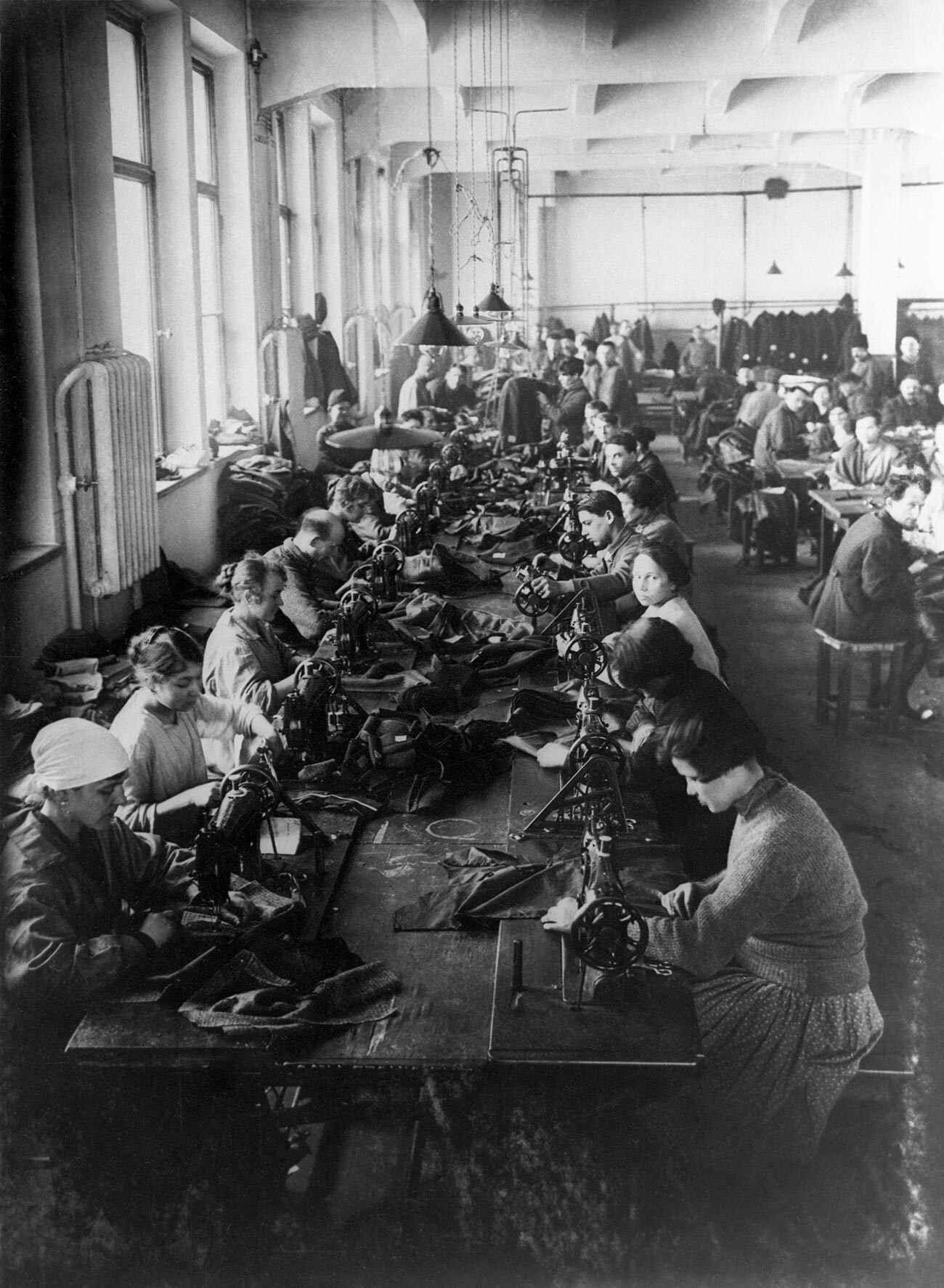
Workers of a Moscow shoe factory installing sewing machines.
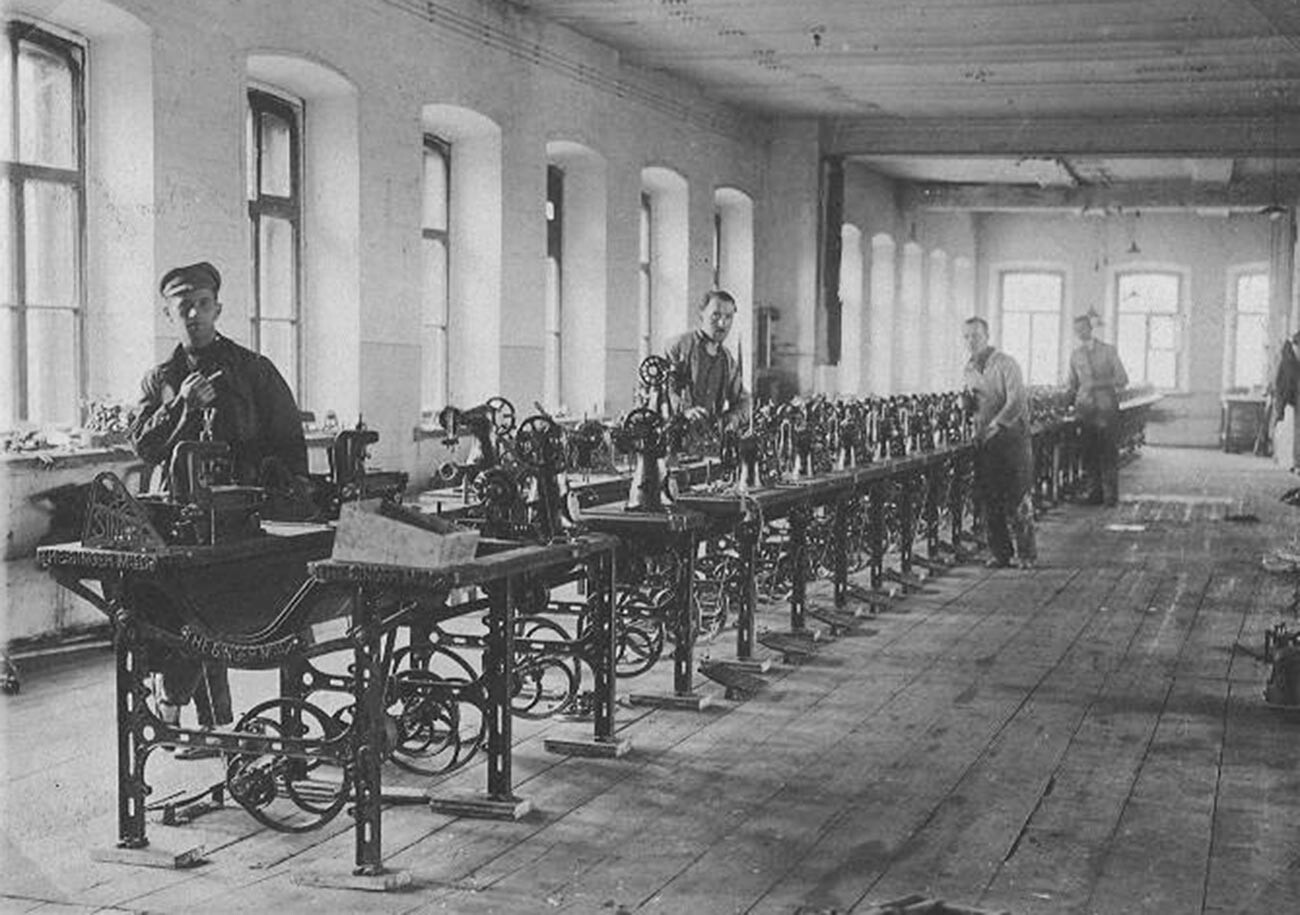
In 1922, the first pioneer organization was formed in the USSR - the future All-Union Pioneer Organization named after V. I. Lenin.
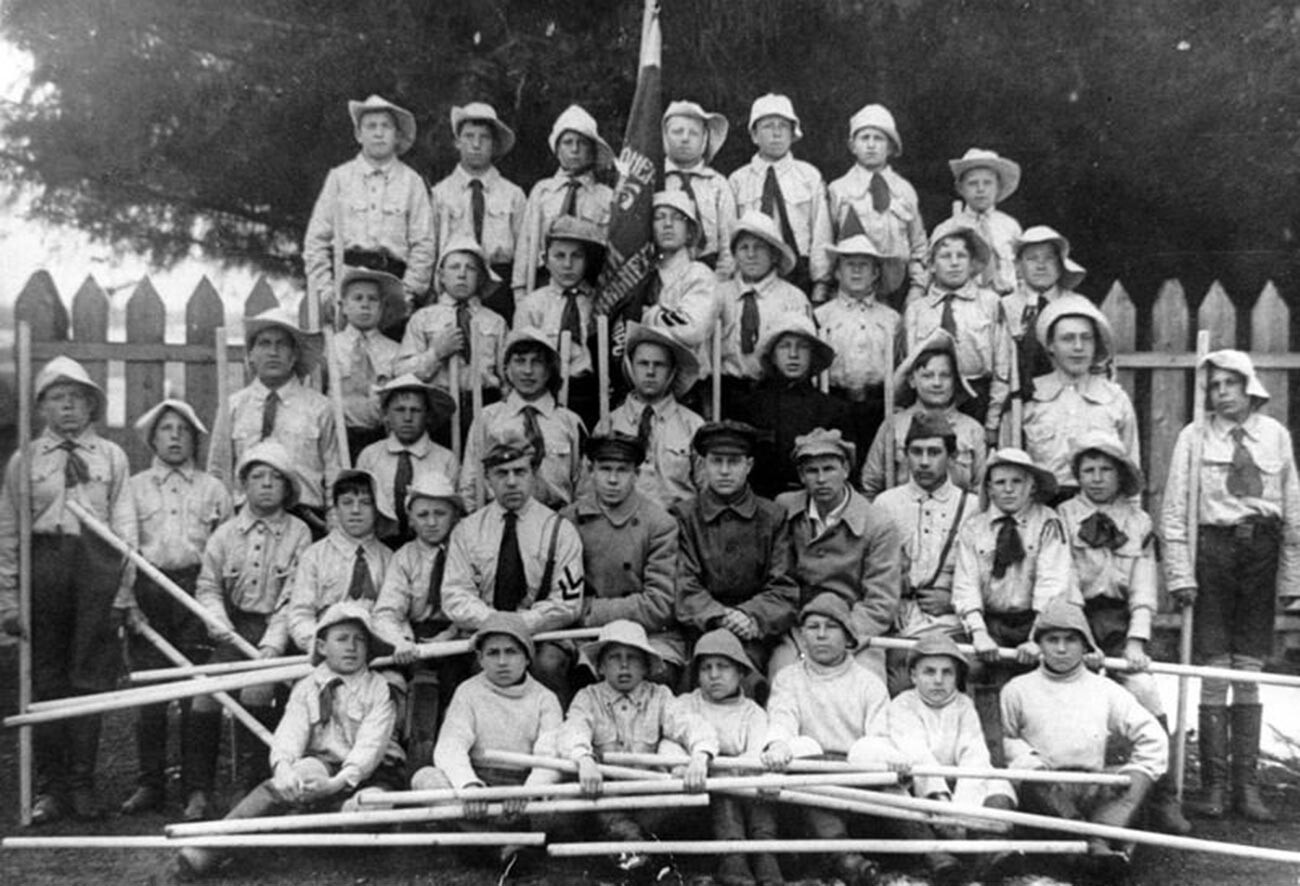
On a Moscow street.
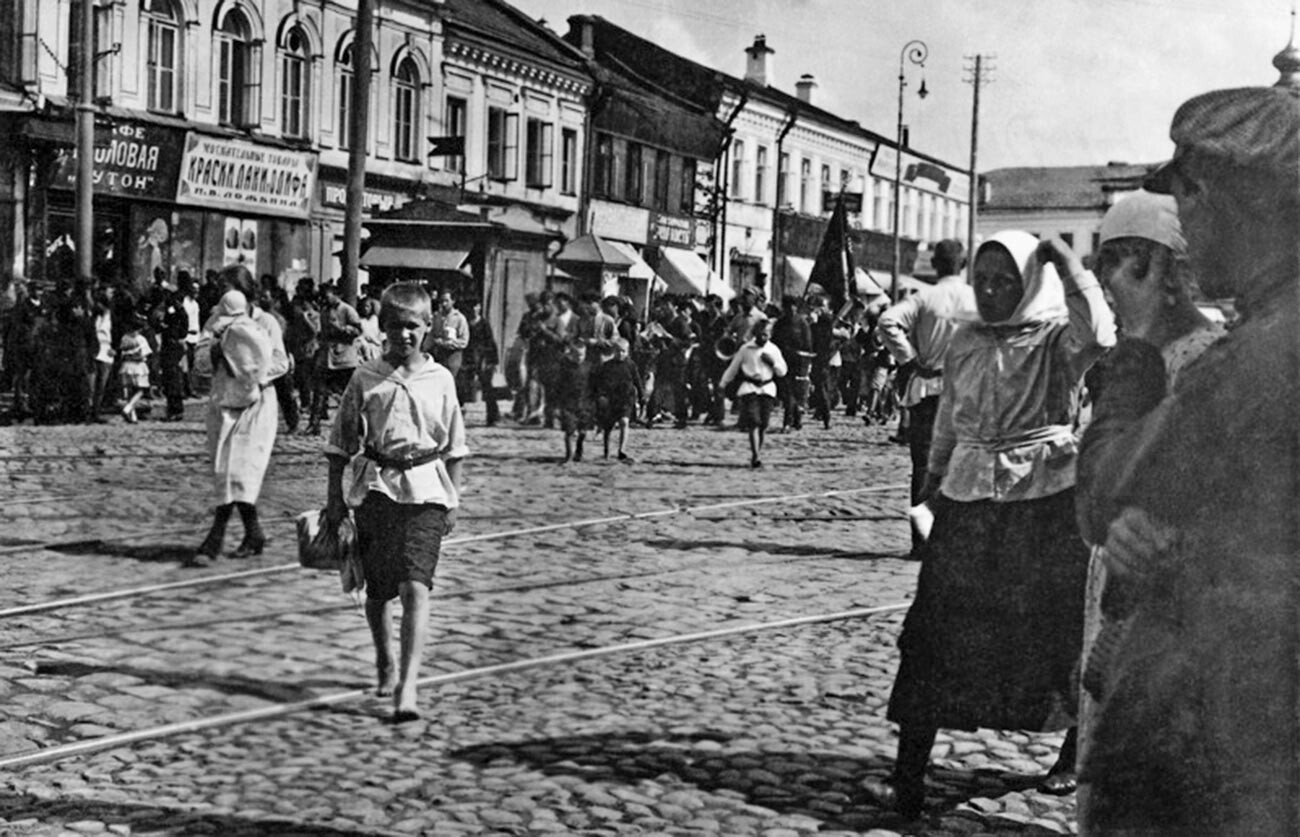
Former Imperial institutions were either abolished or nationalized. The Petersburg theater of opera and ballet became the state-owned one. Pictured below is Russian ballet dancer Olga Spesivtseva performing Aurora in the Pyotr Tchaikovsky ballet ‘Sleeping Beauty’.
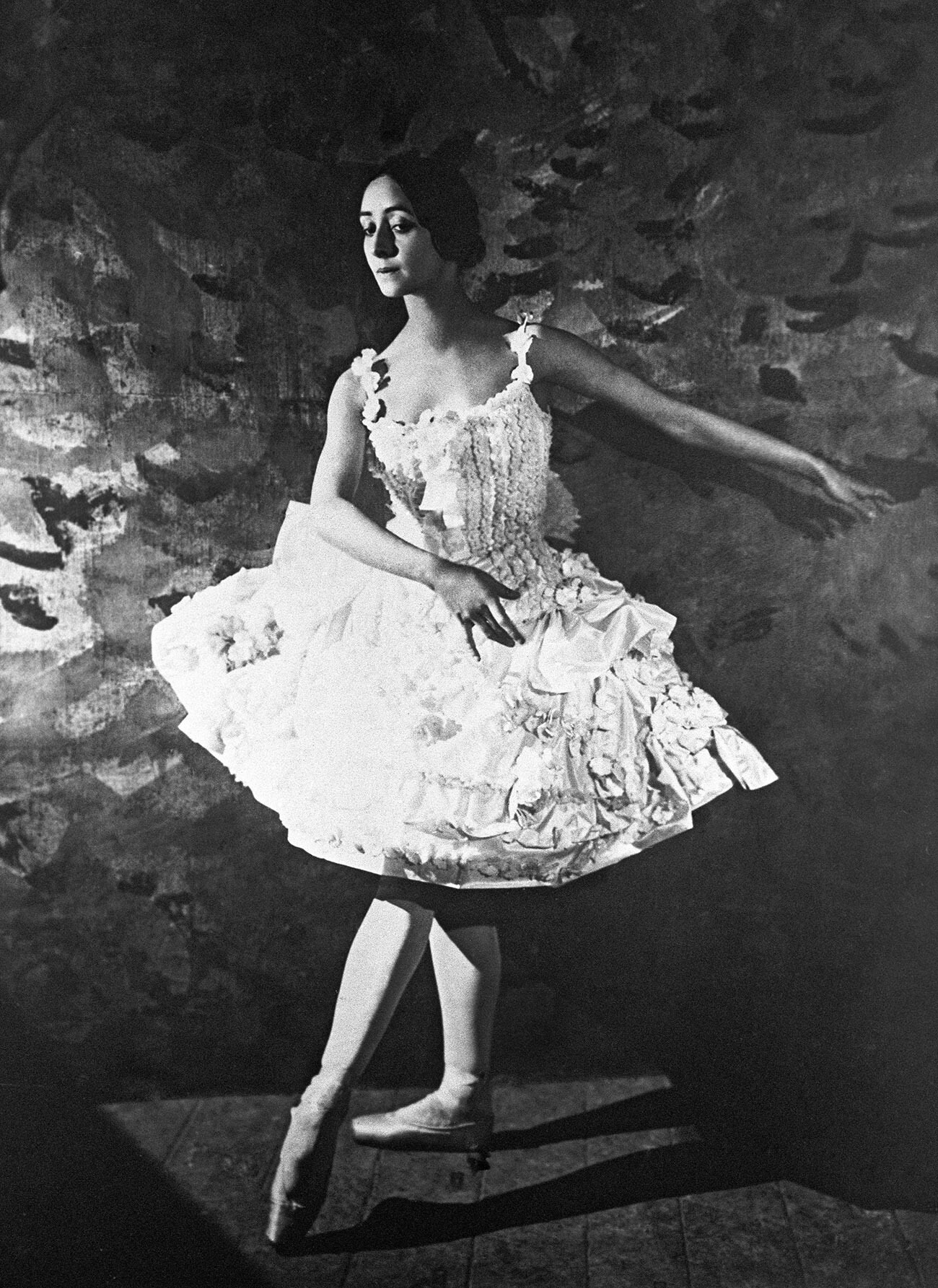
Famous poet Sergei Yesenin married an American dancer Isidora Duncan, who came to Russia to set up a dancing school.
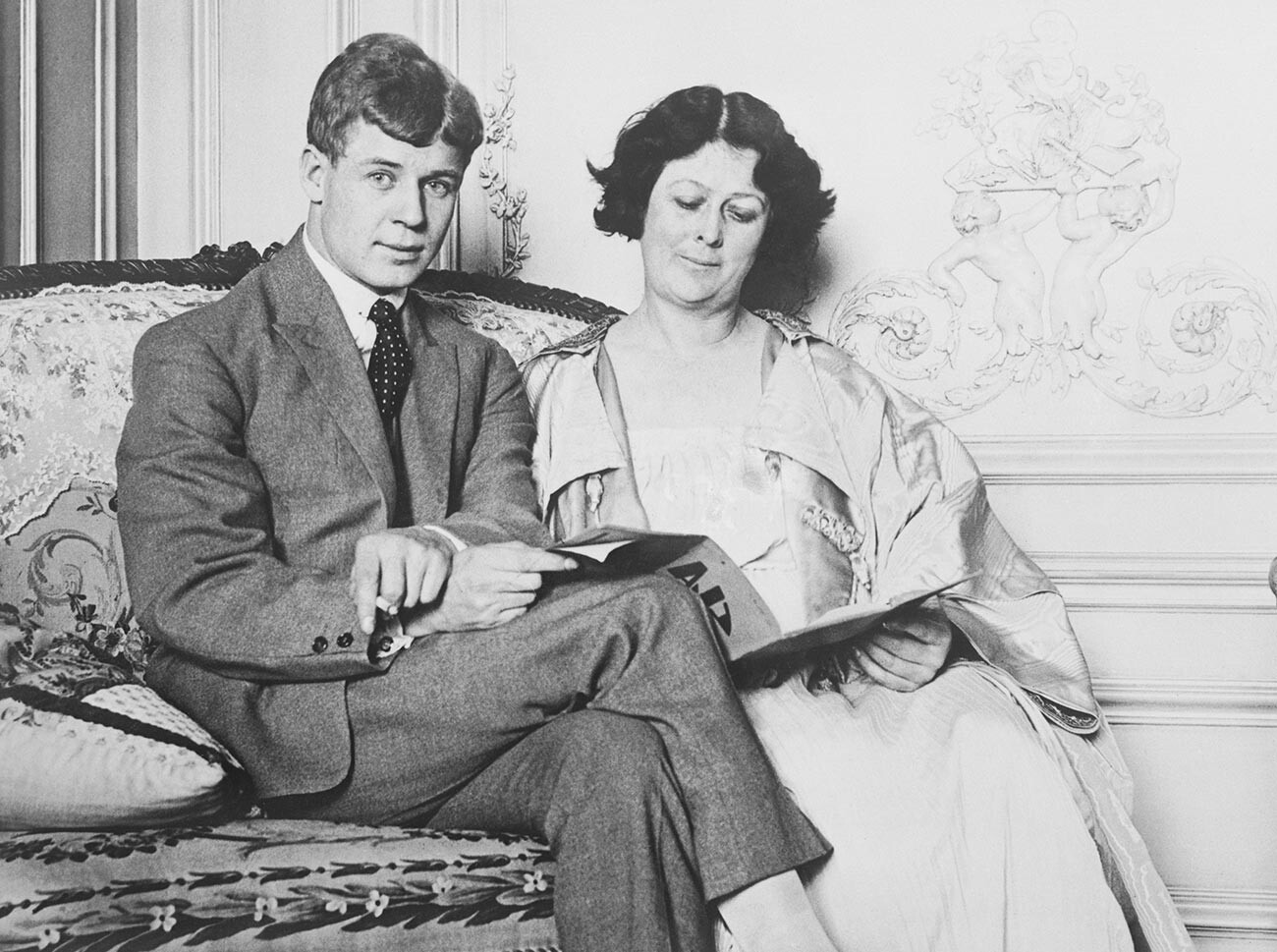
The Bolsheviks, busy with political and war issues, hadn’t managed yet to take care of arts (and basically censorship), so the 1920s was a heyday for arts, including the famous avant-garde art, which took fine arts, films, theater and literature by storm. Pictured below: poet Vladimir Mayakovsky and his beloved Lilya Brik.
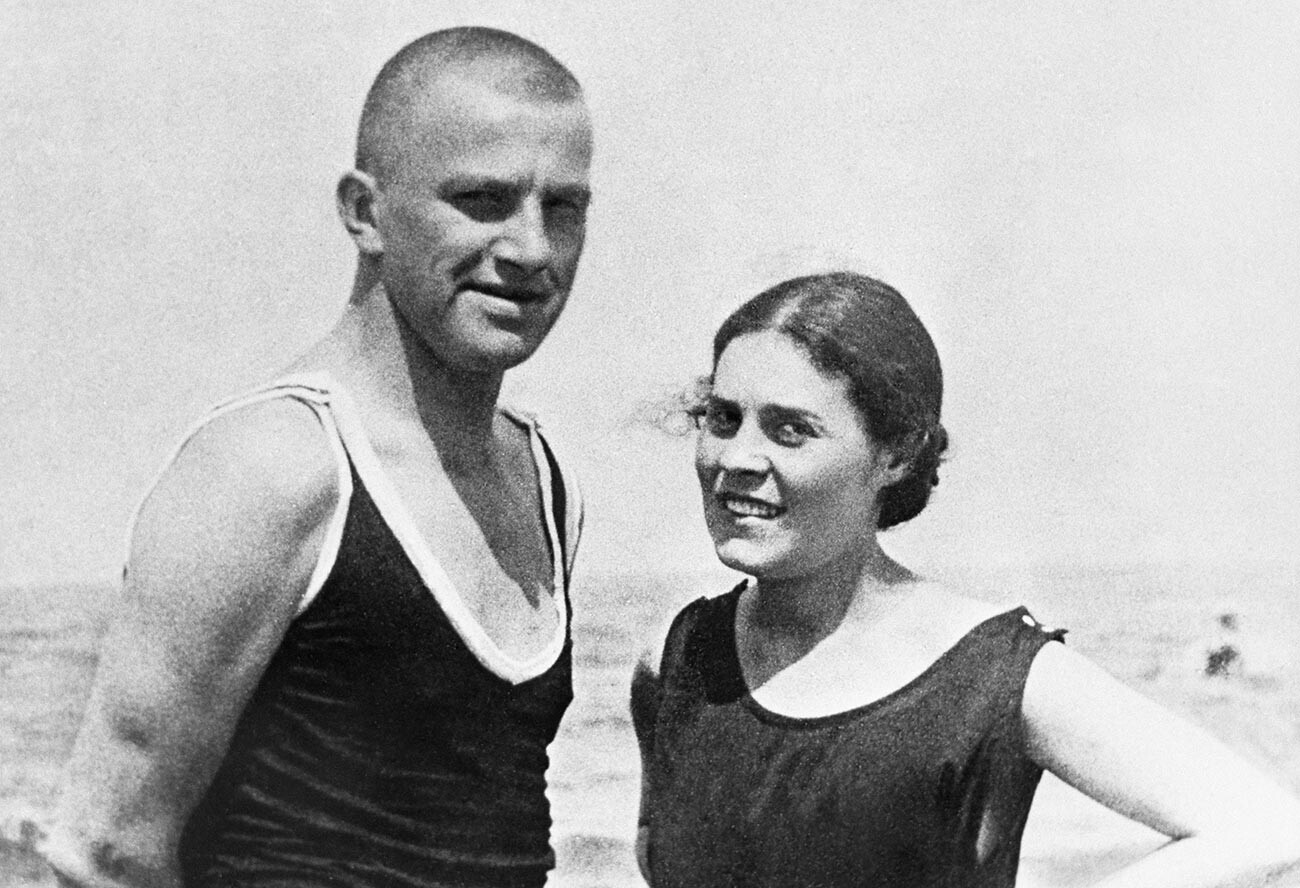
Avant-garde artist and designer Varvara Stepanova preparing her innovative scenography for a theater performance ‘Death of Tarelkin’, staged by Vsevolod Meyerhold.
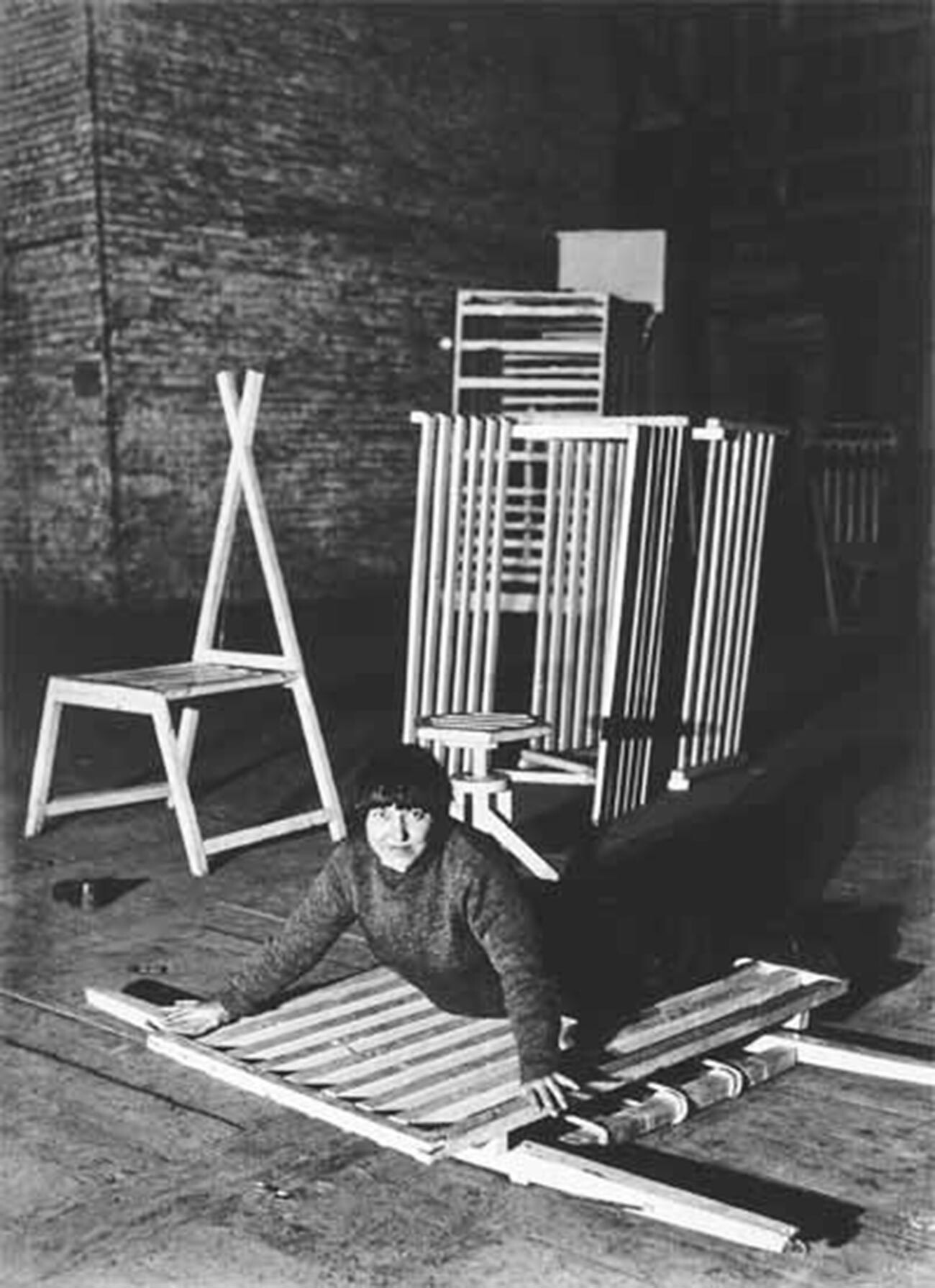
Varvara Stepanova and her husband, famous avant-garde photographer Alexander Rodchenko.
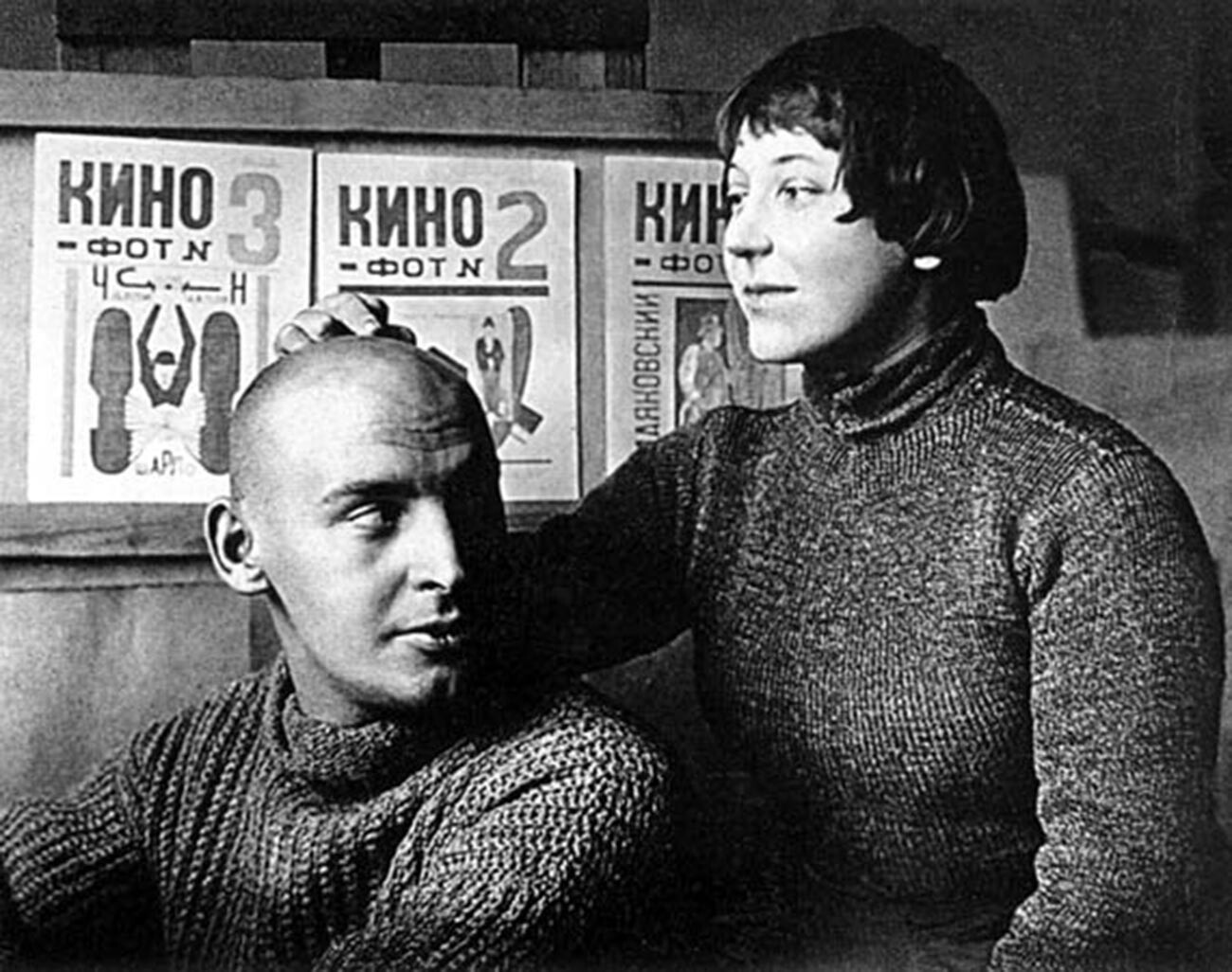
Anna Akhmatova was a great poet who suffered the most from the Soviet power. A year before, her husband, poet Nikolai Gumilev, was killed - and in the 1930s, her second husband and son would be sent to Stalin’s jails.
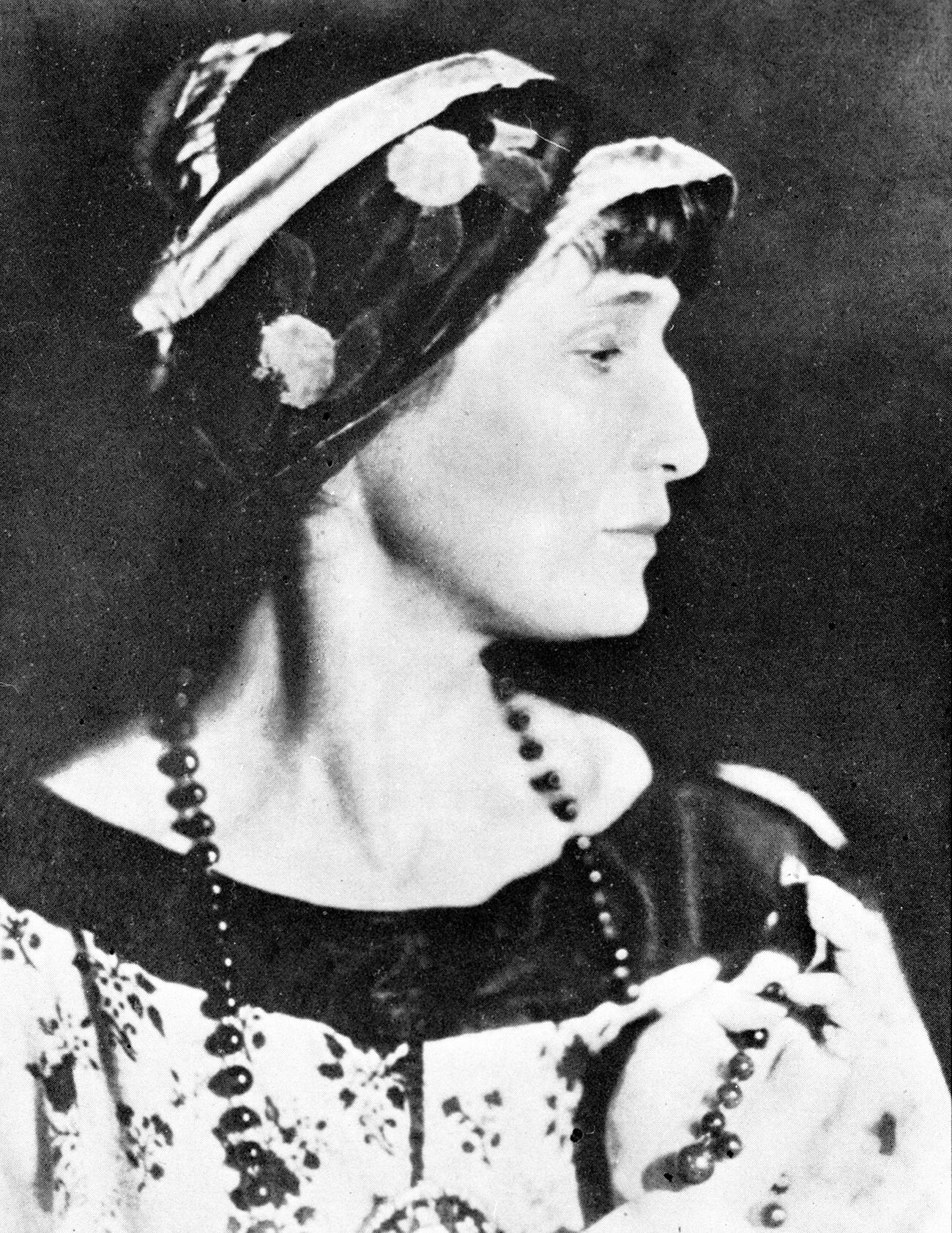
At the same time, the Soviet authorities launched the anti-religious campaign, pursuing the priests and assuming the church property: church items, precious metals and icons decorated with jewels. Pictured below is the interrogation of Metropolitan Benjamin of Petrograd, who was later executed.
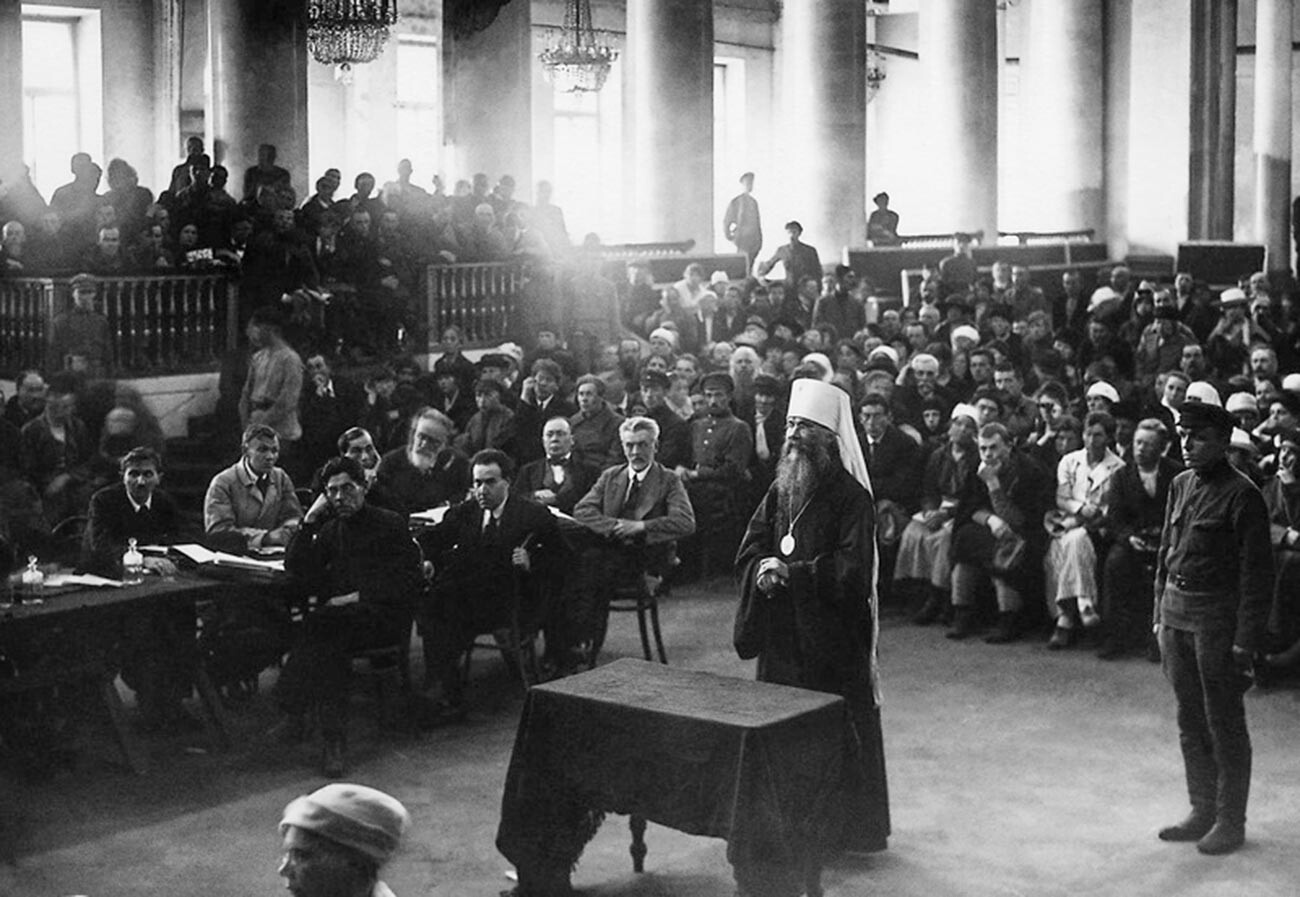
The commission in charge of the 1922 confiscation of jewelry from churches.
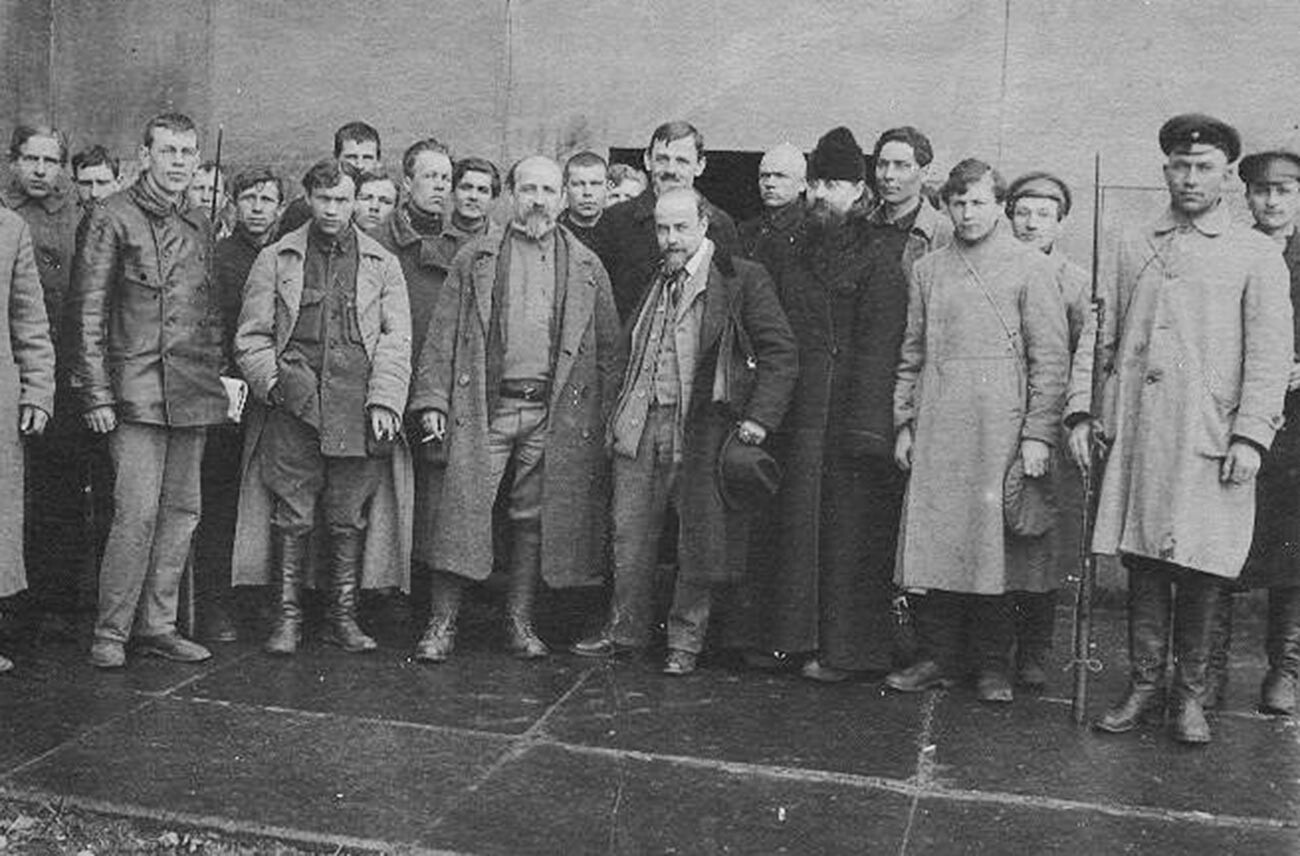
Muscovites crowded near St. George Church (later demolished) during the seizure of church valuables.
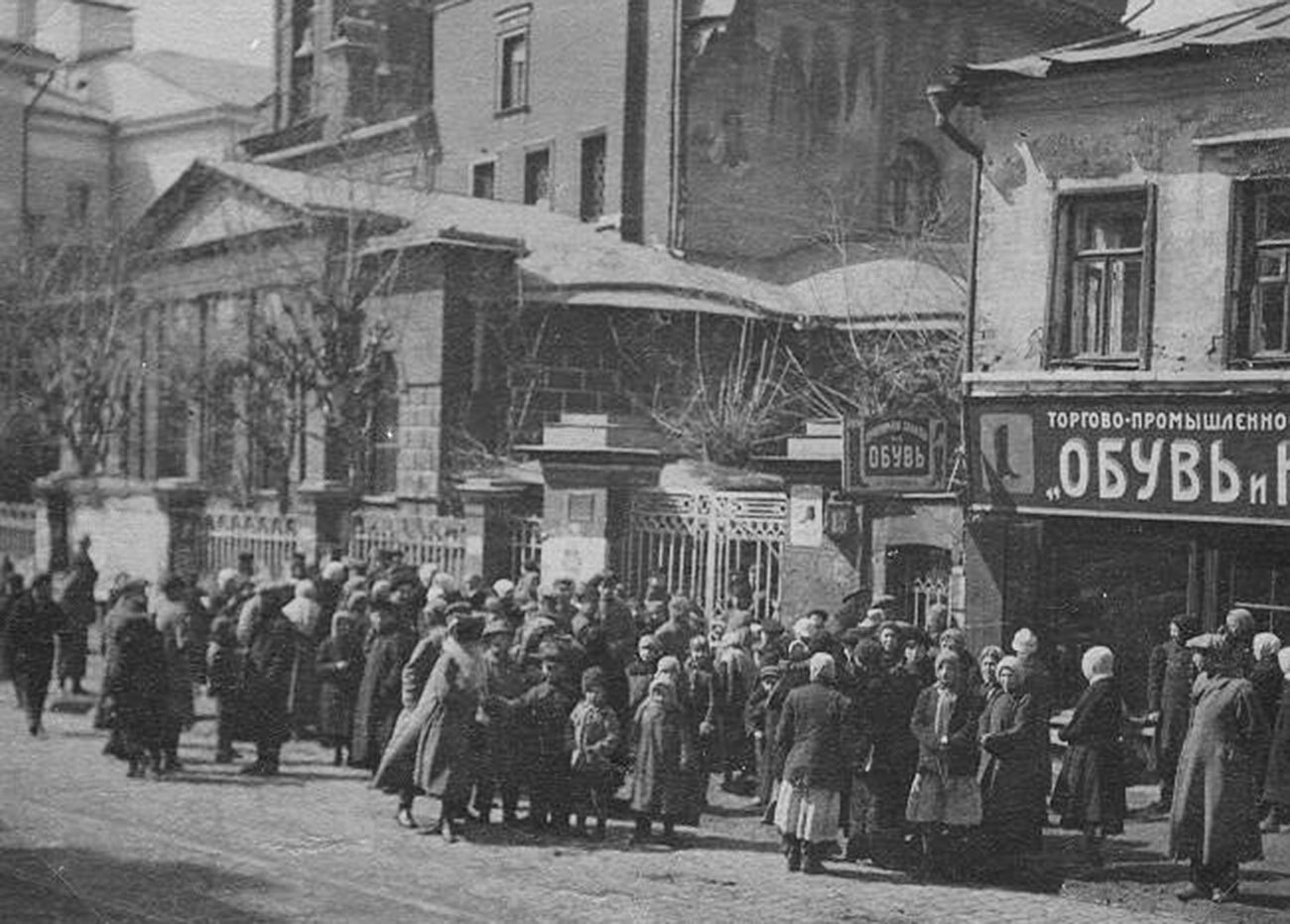
Members of the Petrograd council opening Alexander Nevsky’s shrine. The remains of the Russian saint were moved from the Alexander Nevsky Lavra to the new Museum of religion and atheism.
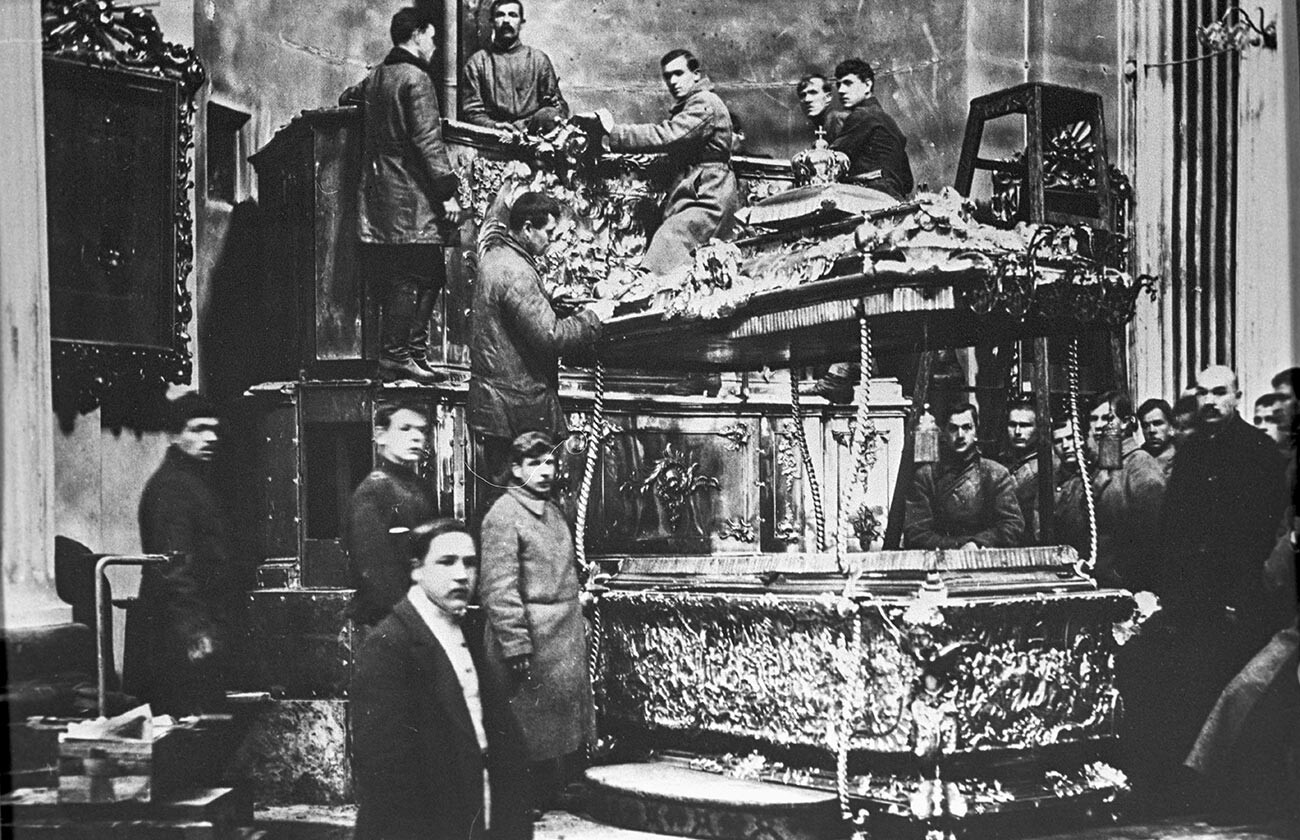
READ MORE: How the Bolsheviks sold off Romanov treasures to the West
Bus traffic started in earnest in Moscow in 1922. Pictured below is one of the first buses of the Moscow Automobile Plant.
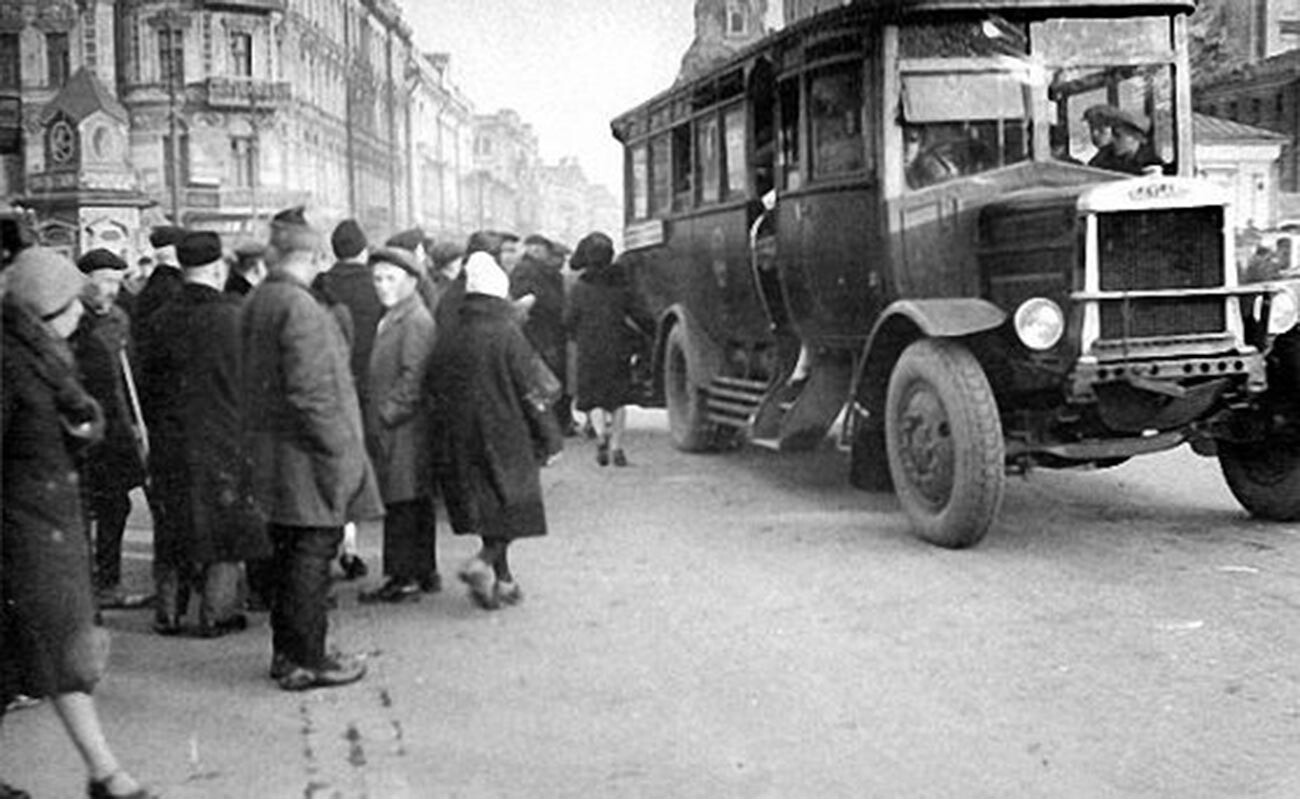
Leon Trotsky’s innovative automobile sleigh.
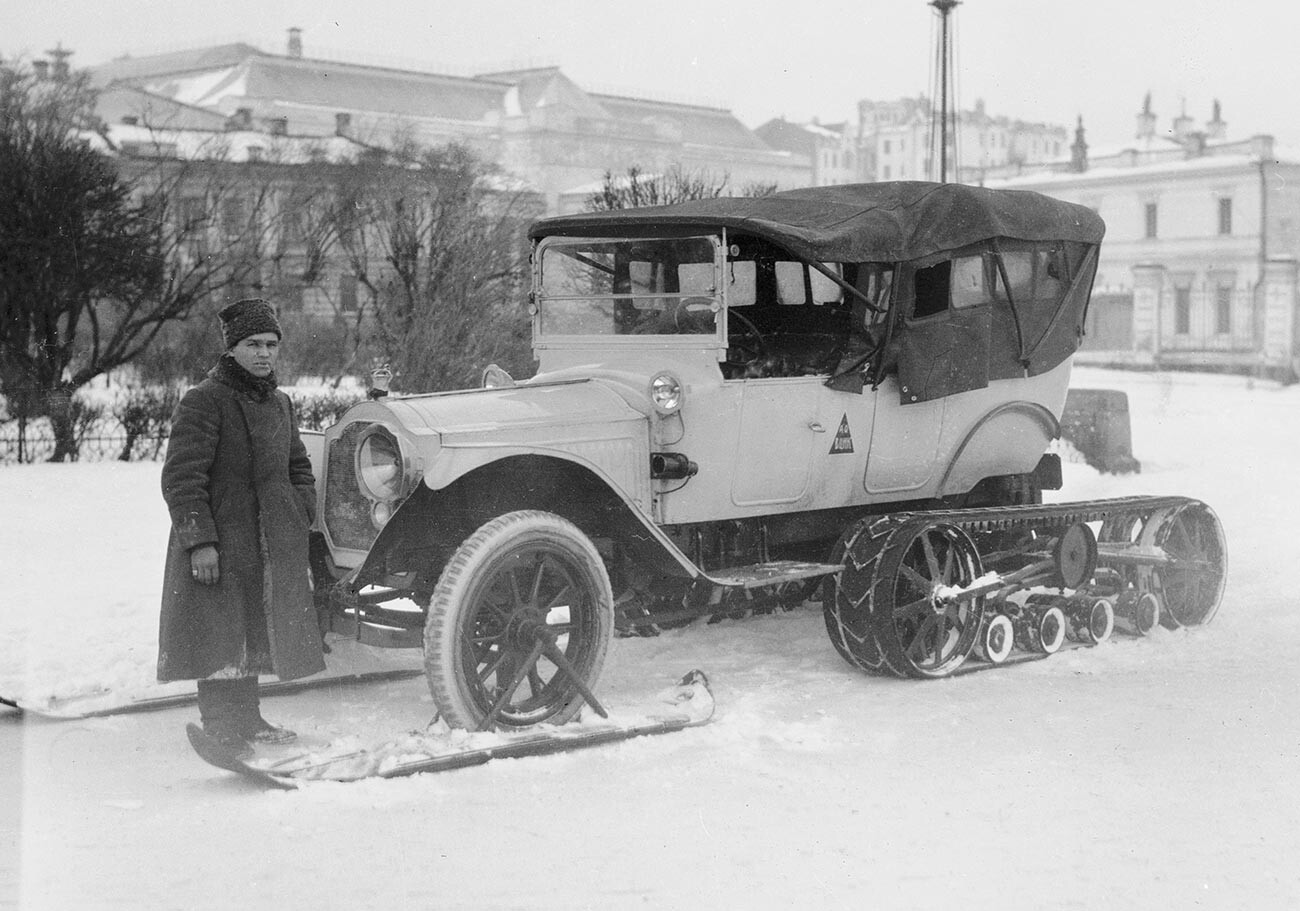
A group photo of rabbit breeders.
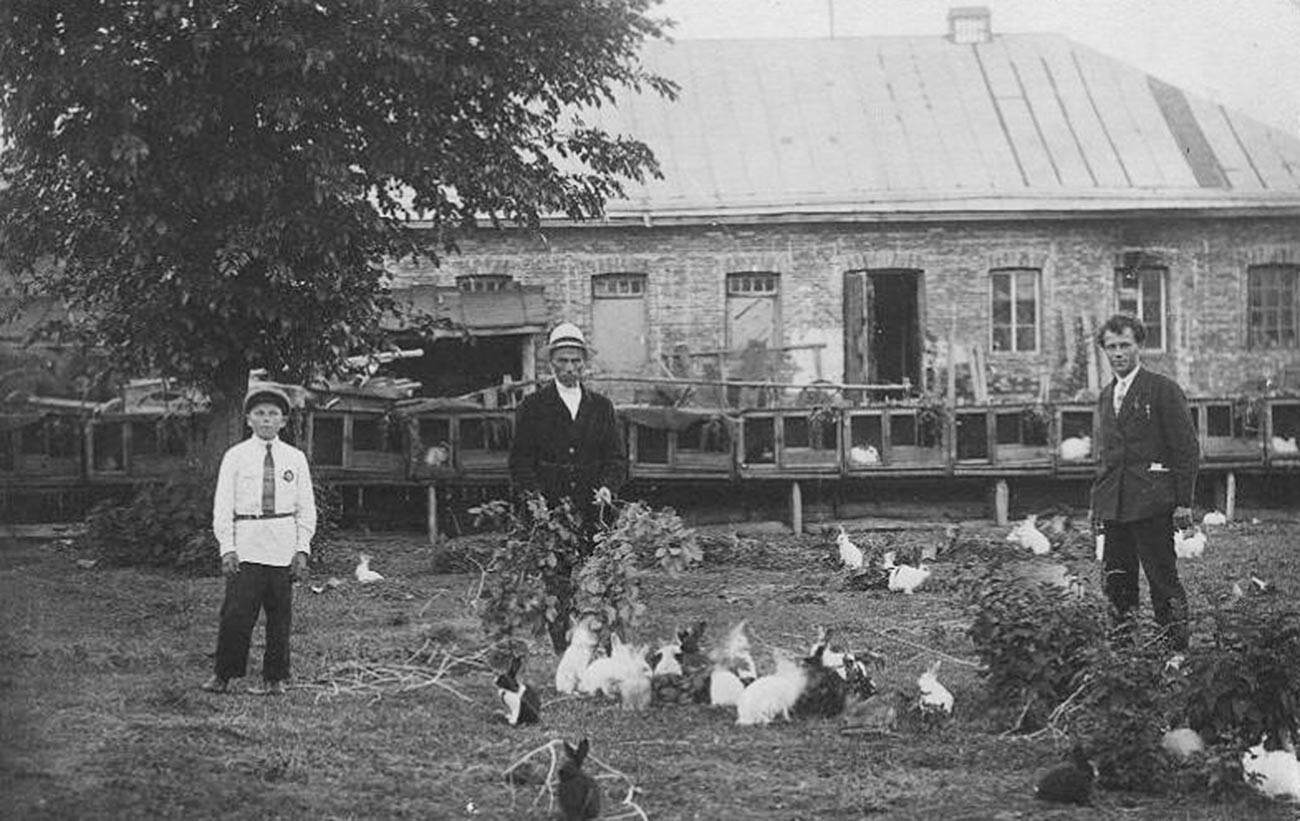
A Moscow family portrait.
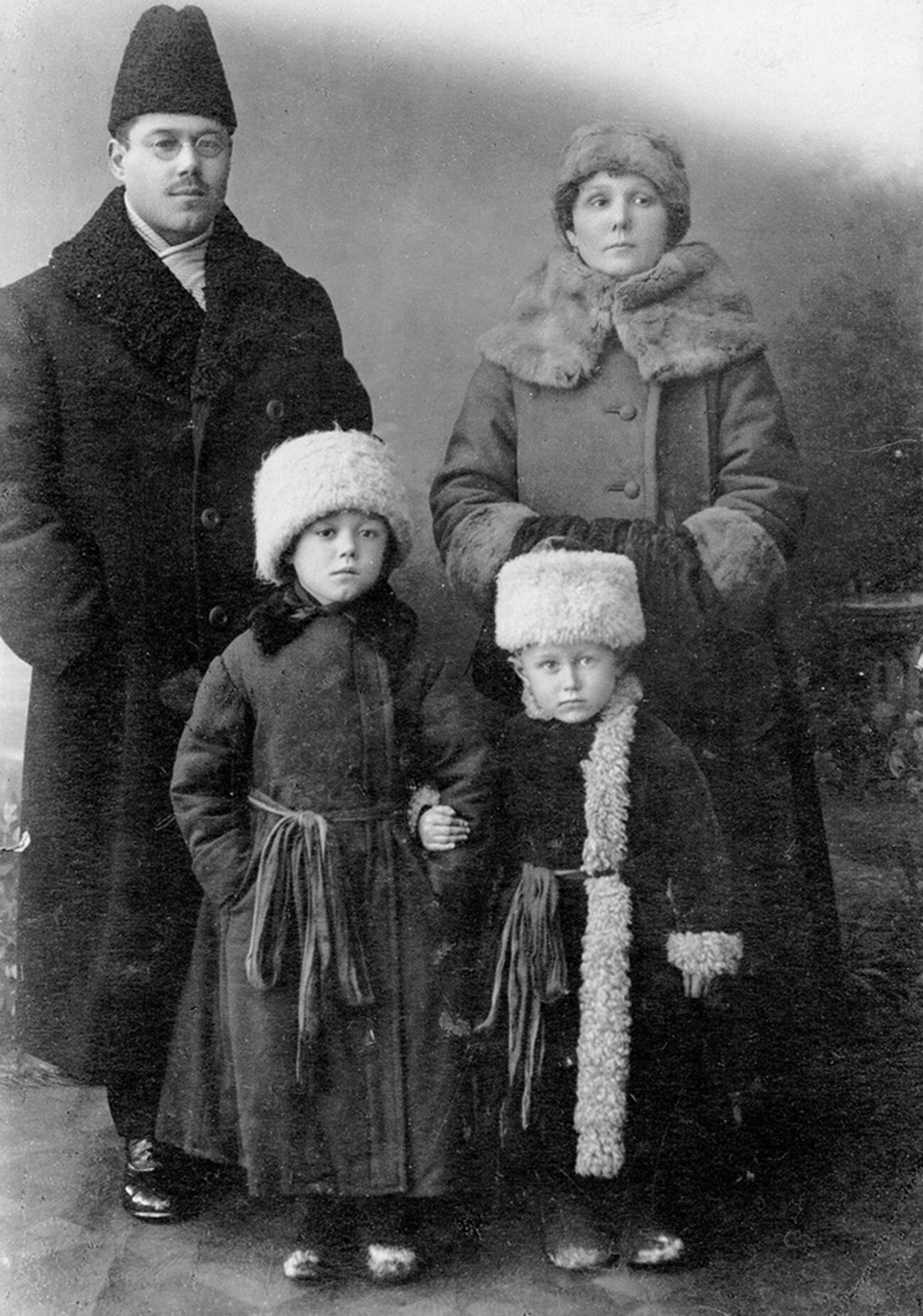
The Bolsheviks launched the ‘Likbez’ campaign of eradication of illiteracy. Pictured are Caucasian women during literacy class.
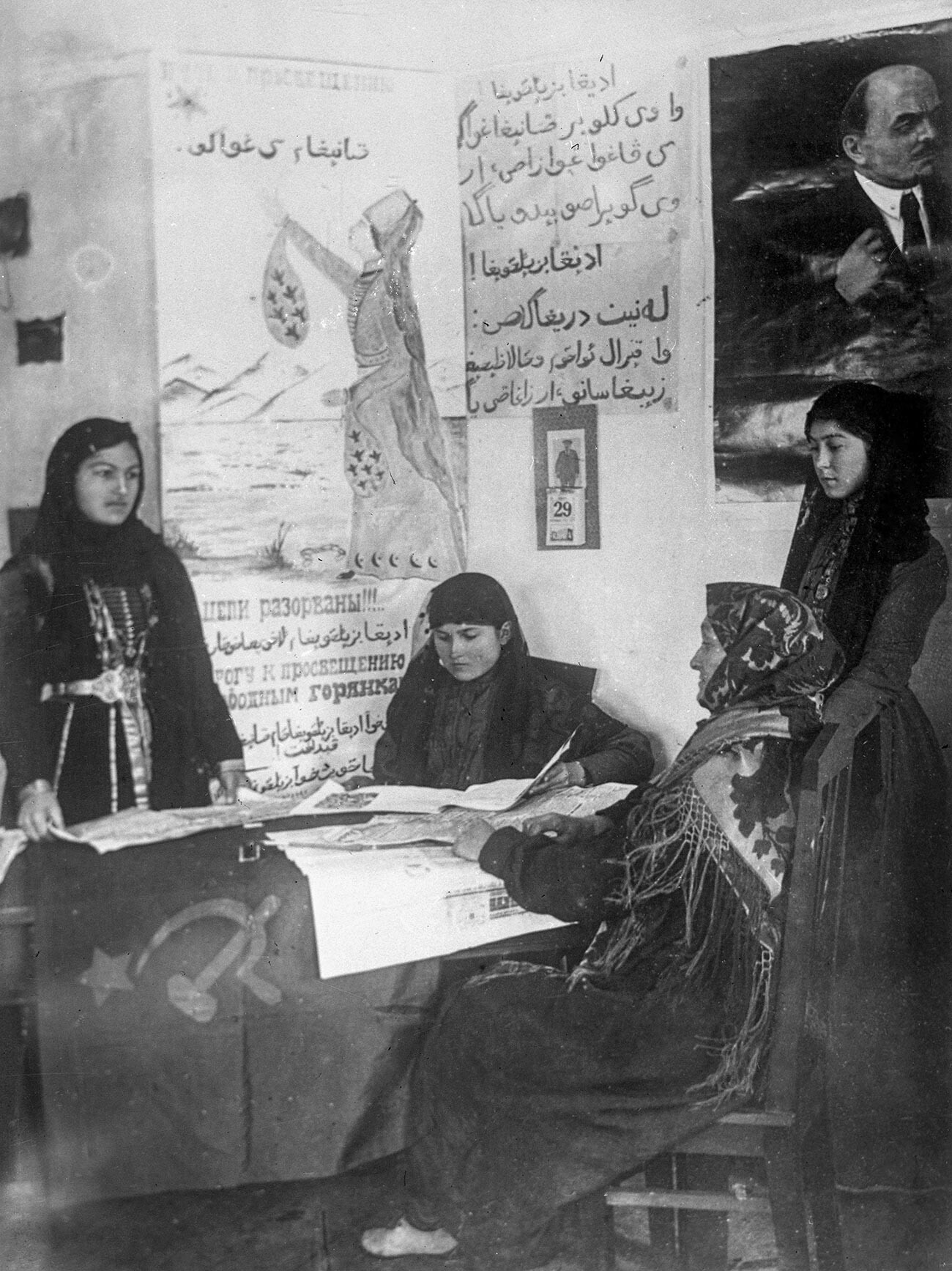
On December 30, the First All-Union Congress of Soviets took place in Moscow, which approved the Treaty on the Formation of the USSR.
